
Struggling with oily skin and not sure how to battle the 12pm shine? Then you’re in the right place.
As someone with oily skin, I've naturally gravitated towards scrubs and toners, sometimes scrimping on moisturiser. But anyone who knows anything about skincare will know that this approach has led to less-than-desirable results. So, we consulted dermatologists, skincare pros, and makeup experts to find the best routine for oily skin, including tips on how to find the best sunscreen for oily skin, the most effective face masks, and more.
First, it’s important to understand your skin type. You might think you have oily skin, but it could instead be dehydrated. Katherine Daniels co-founder and skincare expert, Kirsti Shuba, breaks it down for us. “People often mistake dehydrated skin (which is a skin condition) for oily skin (a skin type) as when the skin is dehydrated it can overproduce sebum to overcompensate for the lack of water, which creates that oily sheen throughout the day,” she explains. “However, an oily skin type produces sebum with a waxy texture and it may take on the thickened appearance of orange peel and you will likely experience plug blackheads.”
Either way, these tips and tricks should help your skin by hydrating, cleansing and mattifying without blocking your pores - but it’s also important to understand your skin type and concern to understand what could work for you.
Top beauty tips for oily skin
Use non-comedogenic formulas
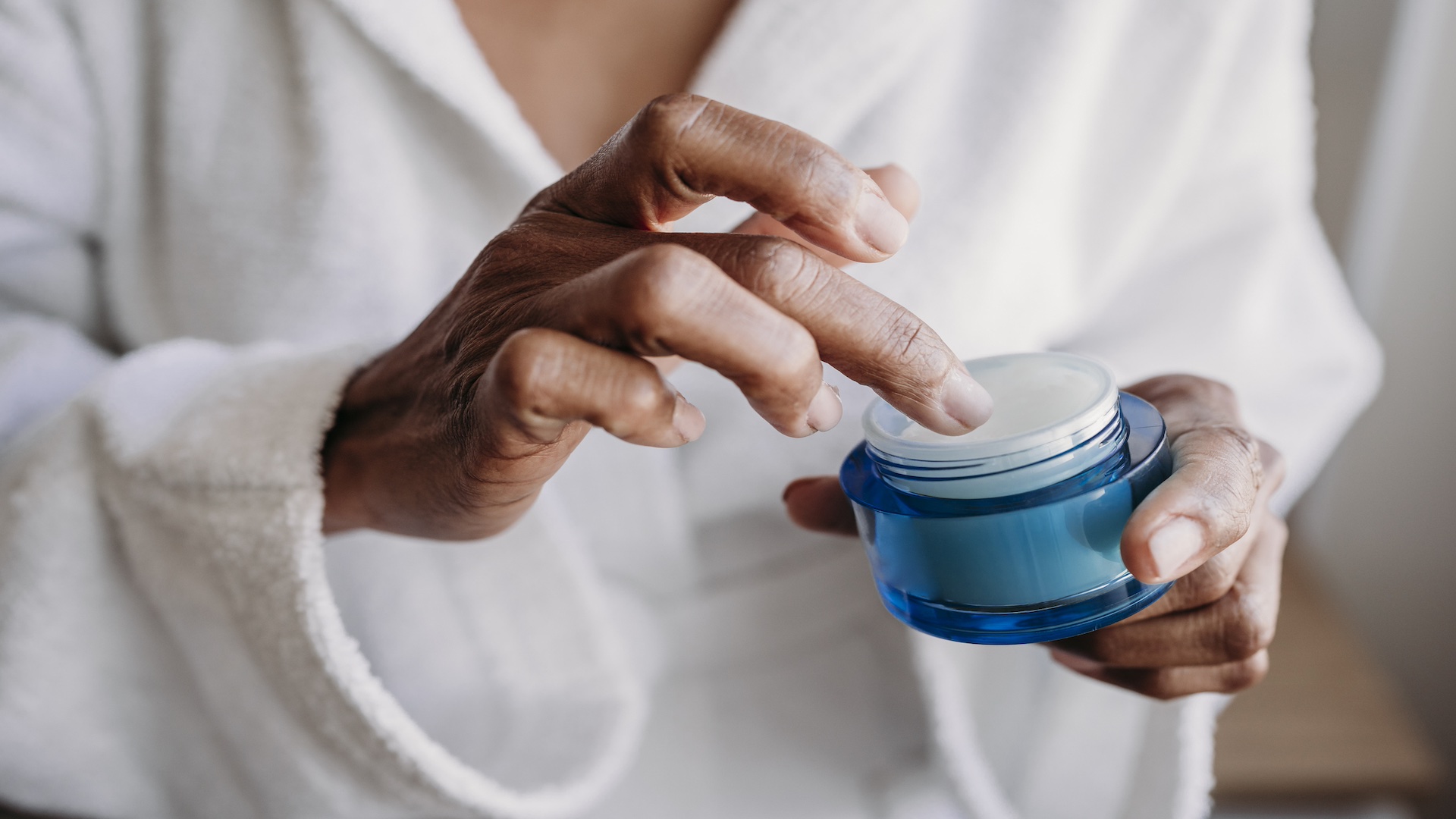
Finding the right formula is everything and it’s truly through trial and error that you’ll find what works for you. However, regardless, you'll want to seek a non-comedogenic formula. Quite simply, it's something that's been formulated to not block your pores.
“Selecting the right formula can be really helpful when supporting oily skin. Formulas that allow the skin to breathe without clogging the pores. Look for a non-comedogenic formula. For example, a lamellar formula is formed of interlocking layers that can house ingredients, and deliver them just below the skin’s surface rather than sitting on the skin’s surface blocking pores” advises Abi Cleeve, Ultrasun UK MD, Founder of SkinSense and owner of SBC Skincare.
Oily skin must-haves

This oil-free formula from La Roche-Posay is our favourite sunscreen for oily skin and is recommended by several dermatologists. With a lightweight, oil-free finish, this high-protection facial SPF is ideal for anyone who suffers from oily skin or is prone to blemishes.
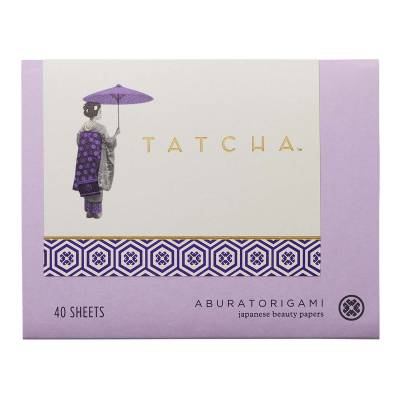
An oldie but goodie, pop a pack of blotting papers in your bag for on-the-go touch-ups throughout the day. They'll mattify your skin instantly without pulling makeup or giving you a cakey finish.
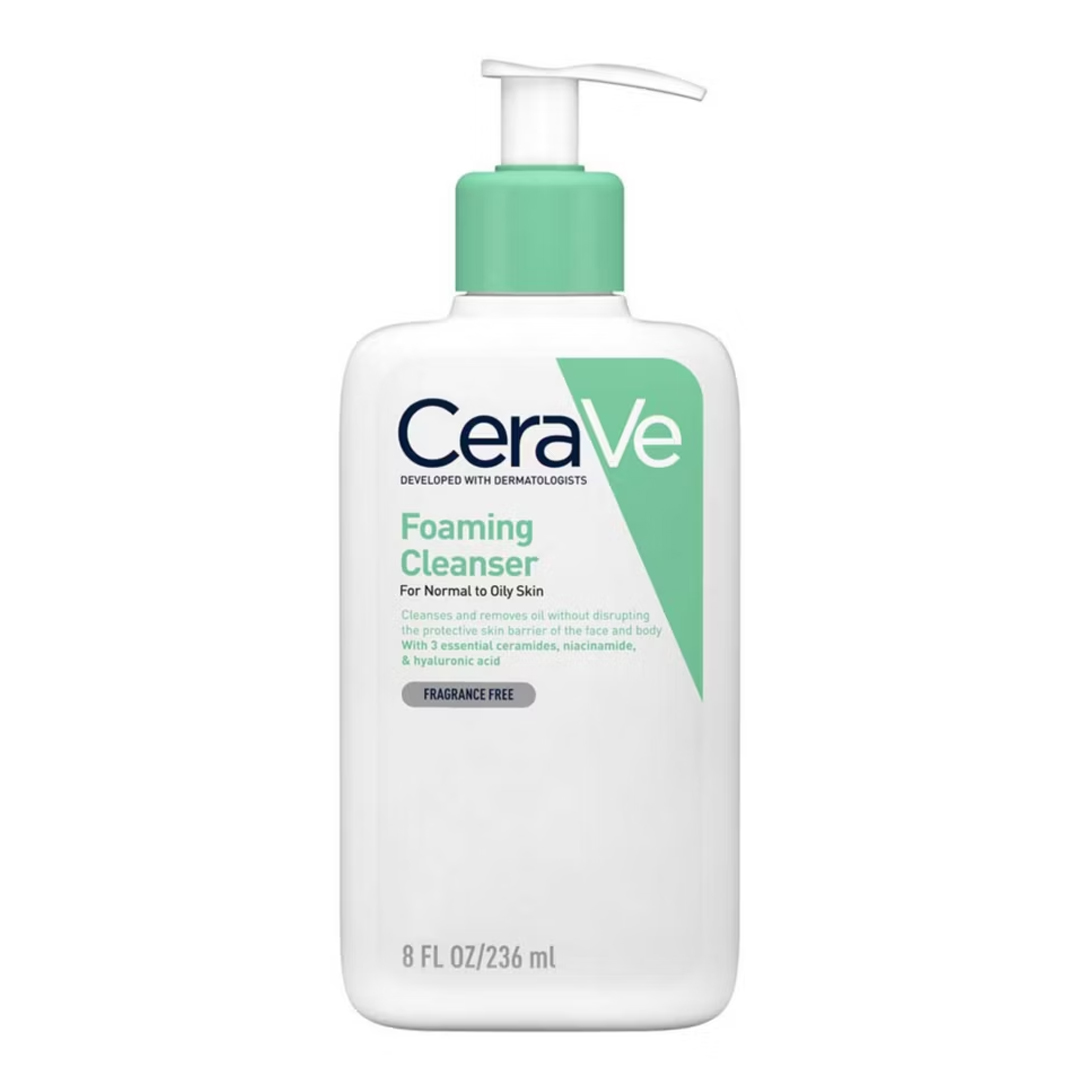
Fragrance-free and non-comedogenic, this foaming cleanser CeraVe is something of a wonder product for oily skin. It's non-comedogenic and is formulated with hyaluronic acid to help retain the skin’s natural moisture, while niacinamide soothes the skin.
Moisturise, moisturise, moisturise!
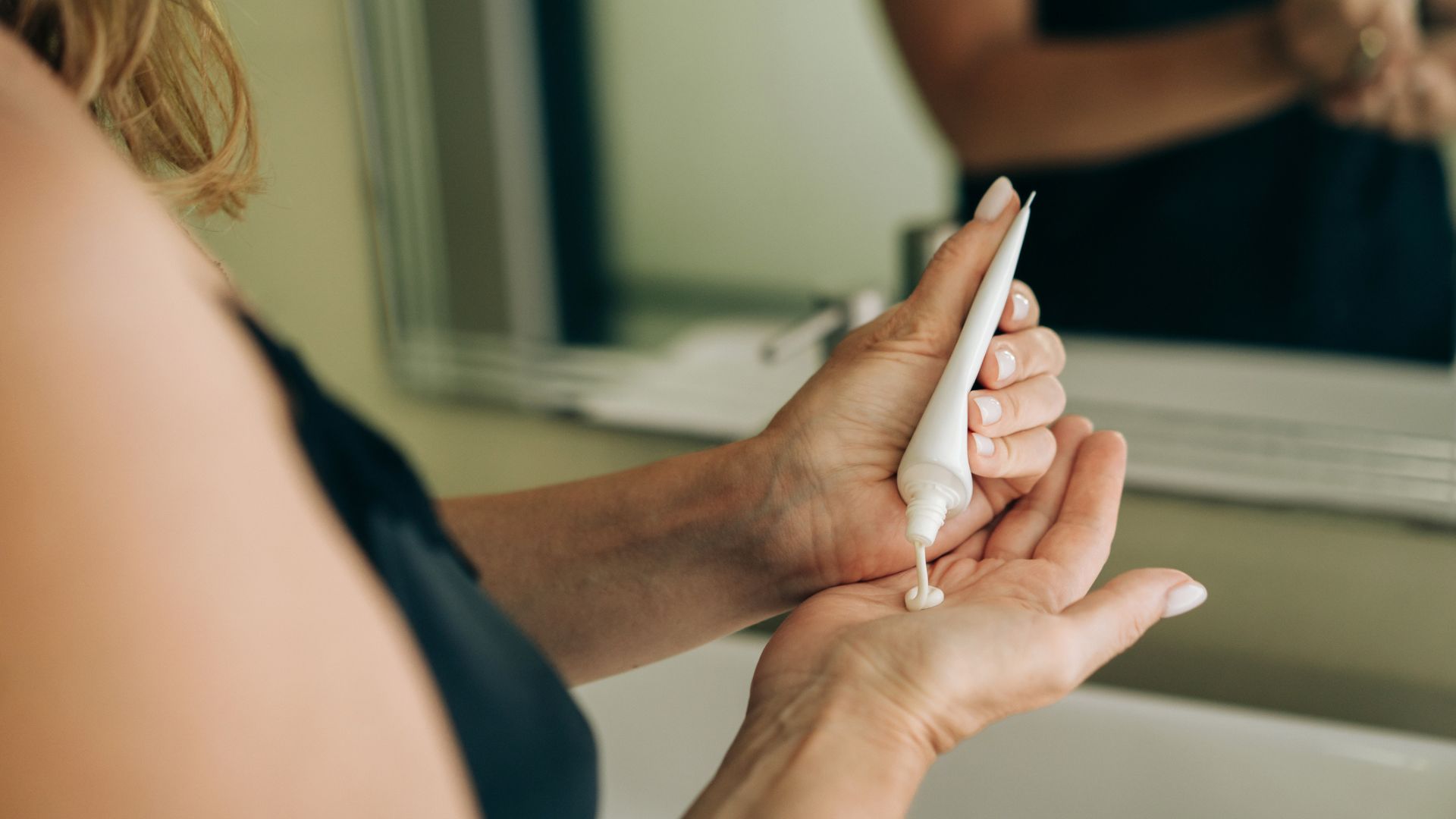
Perhaps the most important tip for oily skin is to ensure that your skin is hydrated. “A common misconception is oily skin doesn’t suffer from dehydration. In reality, oily skin results in an increase of oil production, not water production so hydration is essential for overall skin health,” advises Sharon Hilditch MBE, Founder of Crystal Clear Skincare. “Once the skin is properly hydrated, the oil glands will receive signals from the brain that excess oil is no longer needed, and will consequently slow down the oil production in the skin.”
“Another tip is to use a lightweight, oil-free moisturiser,” adds Dermatology GP, Founder and Medical Director of Dr Nyla Medispa clinics, Dr Nyla Raja. “Many people with oily skin skip this step, but it’s important to maintain skin hydration to prevent overcompensation of oil production.
Use a gel-based cleanser
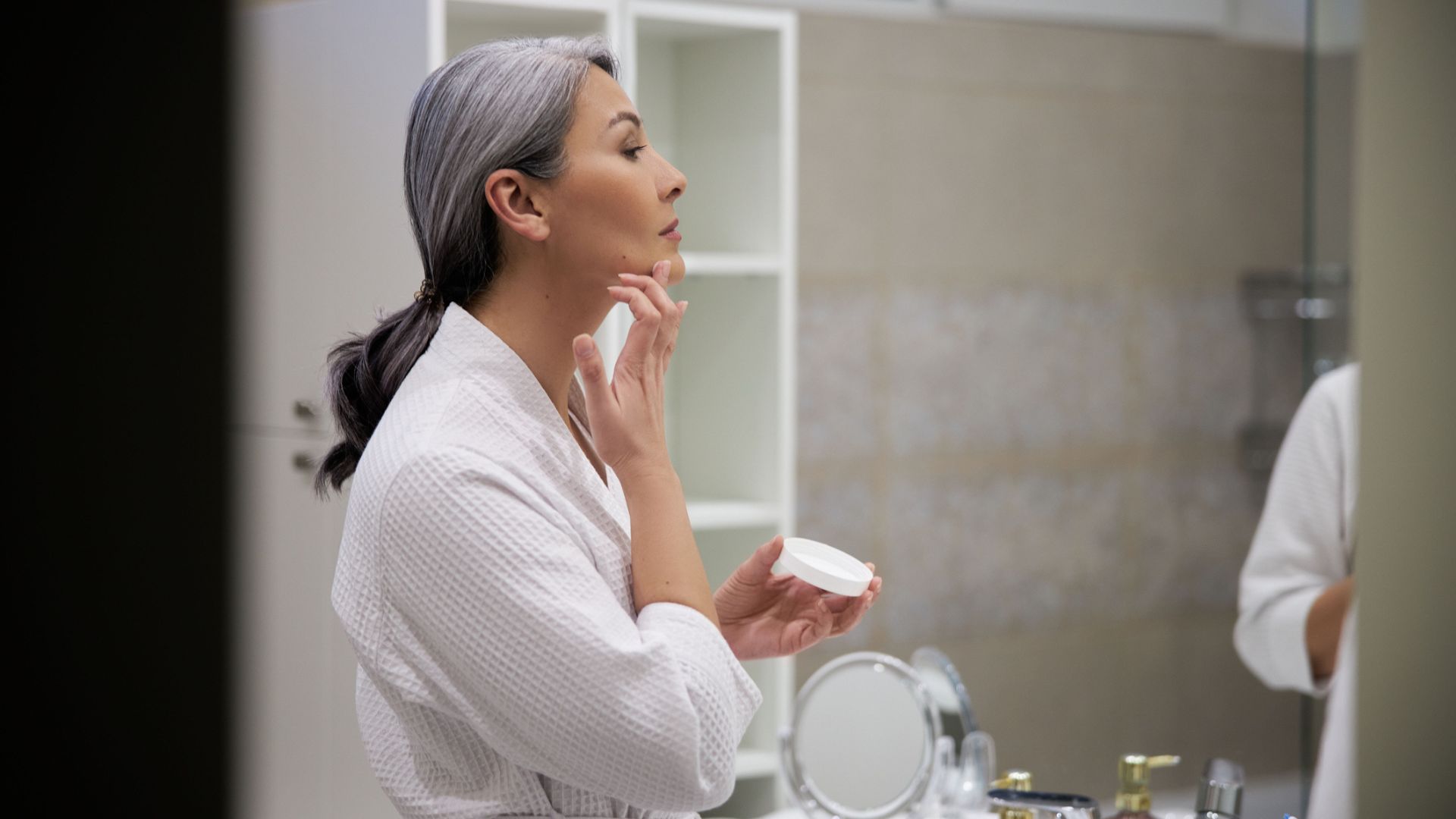
Water-based cleansers or gel formulas are ideal for oily skin as they cleanse away dirt but avoid stripping the skin or adding more oil.
“For an oily skin type, I suggest using a gel-based cleanser for an effective, refreshing cleanse. If you prefer a cleansing balm or oil, you must be thorough and diligent with your removal. I always say a soothing, alcohol-free toning lotion acts like a cleansing ‘safety net’ to ensure your skin is perfectly clean and free from any cleanser residue,” advises Katherine Daniels co-founder, Kirsti Shuba.
Always wear sunscreen
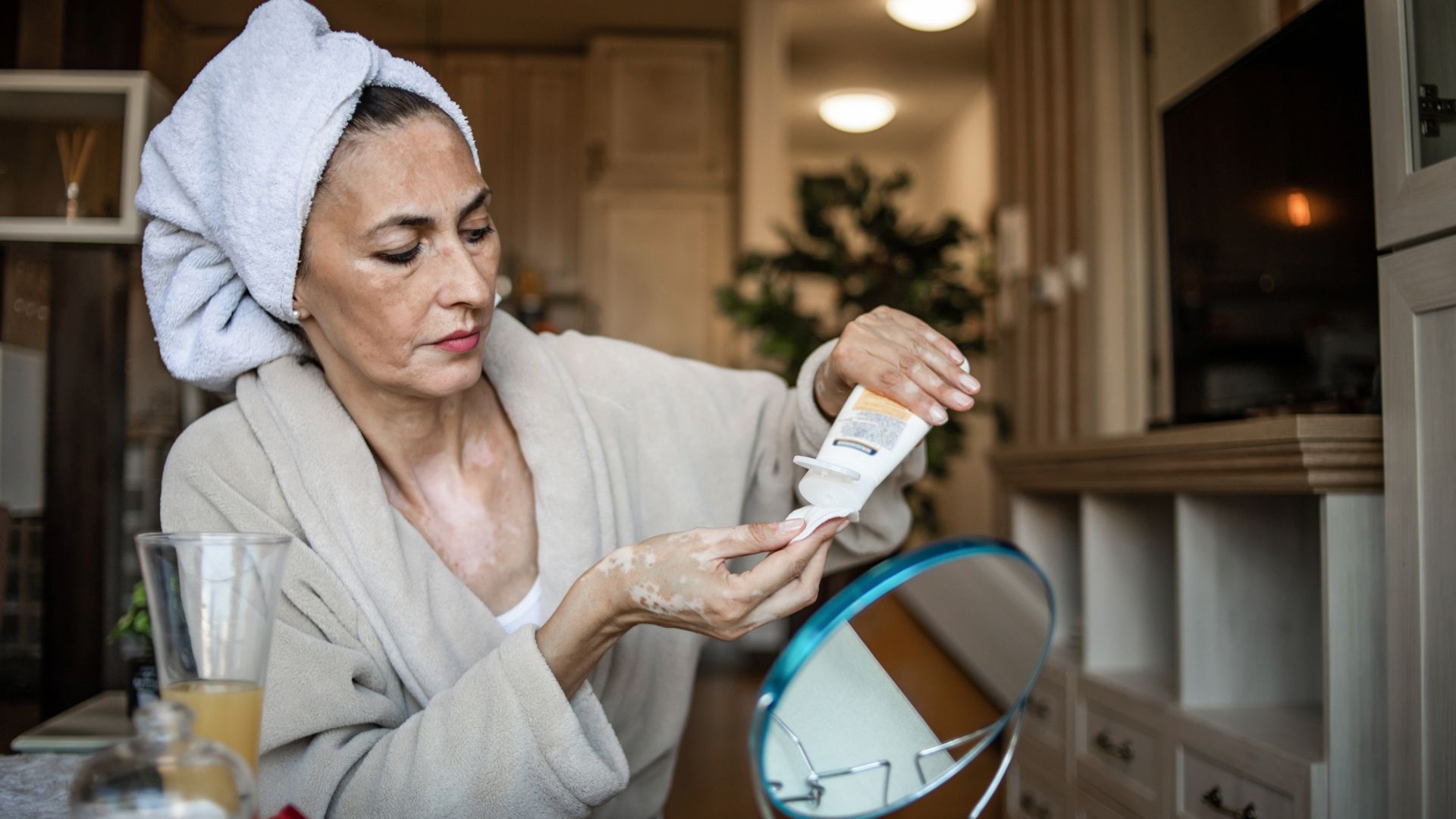
It can be tempting to skip moisturising or applying SPF when you have oily skin, but it’s all about finding the right products. When it comes to sunscreen, that means selecting a thin lotion or gel-based formula that’s ideally oil-free, non-comedogenic and fragrance-free.
“Protecting your skin from sun damage is essential,” says Dr Kunicka. "Choose sunscreens with zinc oxide or titanium dioxide and avoid formulations containing oils or fragrances. This reduces the risk of acne breakouts while safeguarding against sun-induced ageing and skin cancer.”
Use a mattifying primer
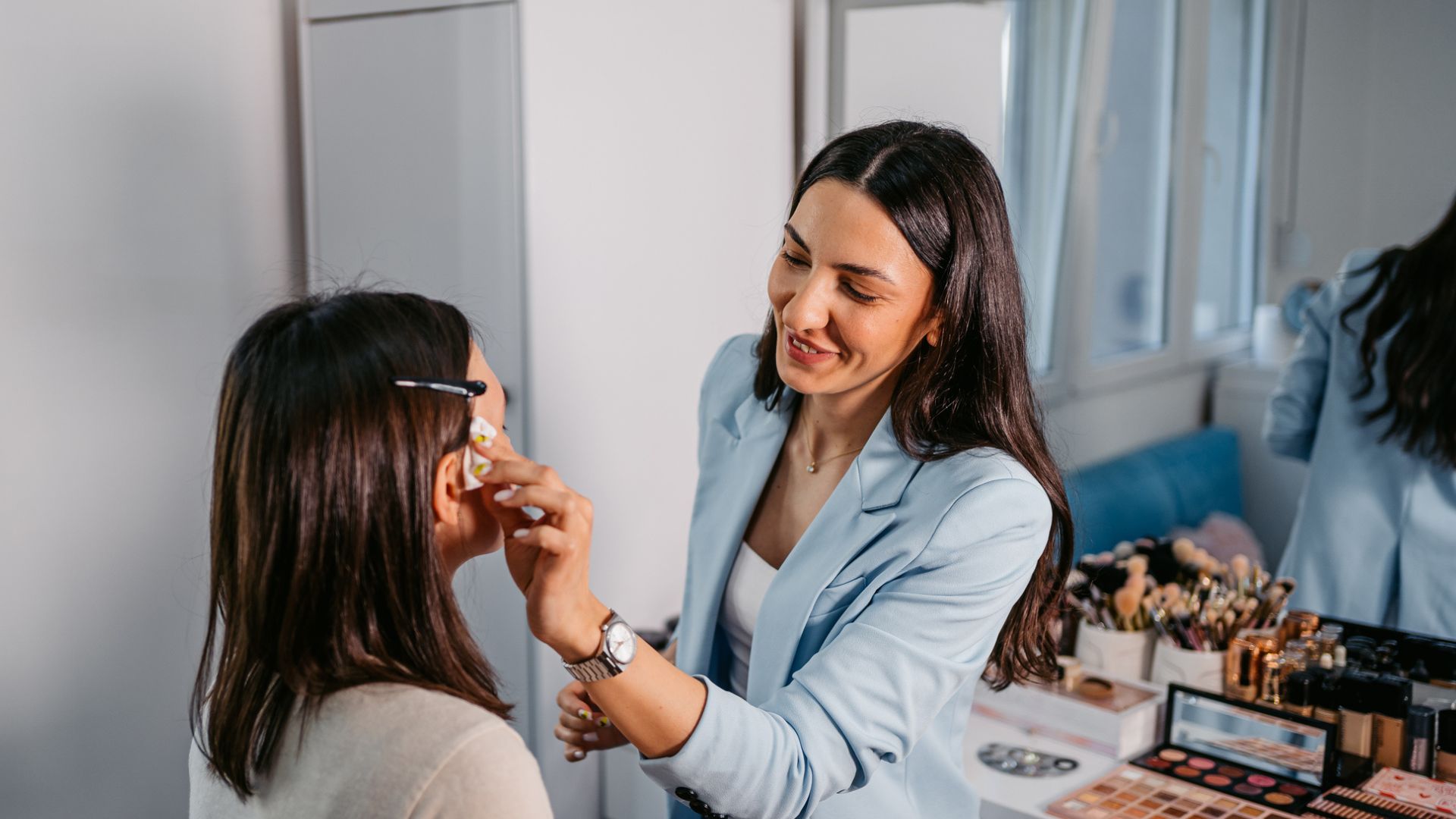
Opt for an oil-free primer to control shine. “Using a mattifying primer before applying makeup will create a smooth, oil-free base,” advises makeup artist and co-founder of Ella & Jo, Charlene Flanagan. “Look for primers that contain ingredients like silica or dimethicone to control oil and blur imperfections.”
Exfoliate regularly
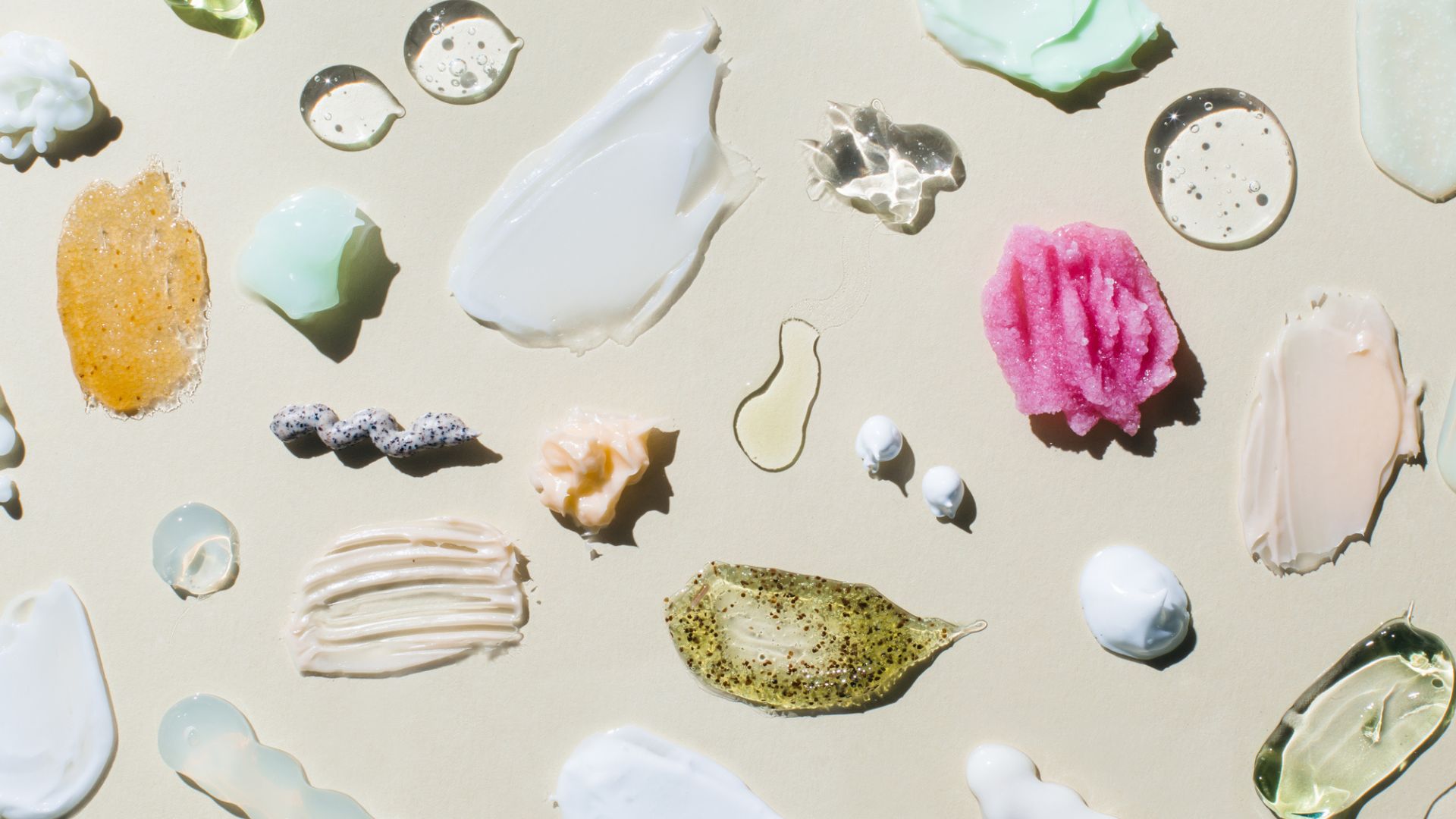
Exfoliate once or twice a week to control your shine and ensure good skin function. "Incorporate gentle exfoliation once or twice a week to remove dead skin cells and prevent clogged pores. Over-exfoliation can damage the skin barrier, so moderation is key," advises Katherine Daniels co-founder Kirsti Shuba.
"Exfoliation helps clear pores and prevent clogged pores, which can lead to increased oil production. By keeping your pores clean, your skin oil production remains more controlled, contributing to a more matte appearance,” agrees makeup artist Charlene Flanagan.
Try a clay mask

Clay masks are great for absorbing excess oil without stripping the sun making them great for oily skin types. "Clay masks are excellent for absorbing excess oils, addressing clogged pores, and reducing inflammation," advises medical skincare doctor Dr Barbara Kubicka.
"They also help prevent mild forms of acne, such as pimples. Incorporate a clay mask into your routine once or twice a week for optimal results."
Avoid alcohol-based toners
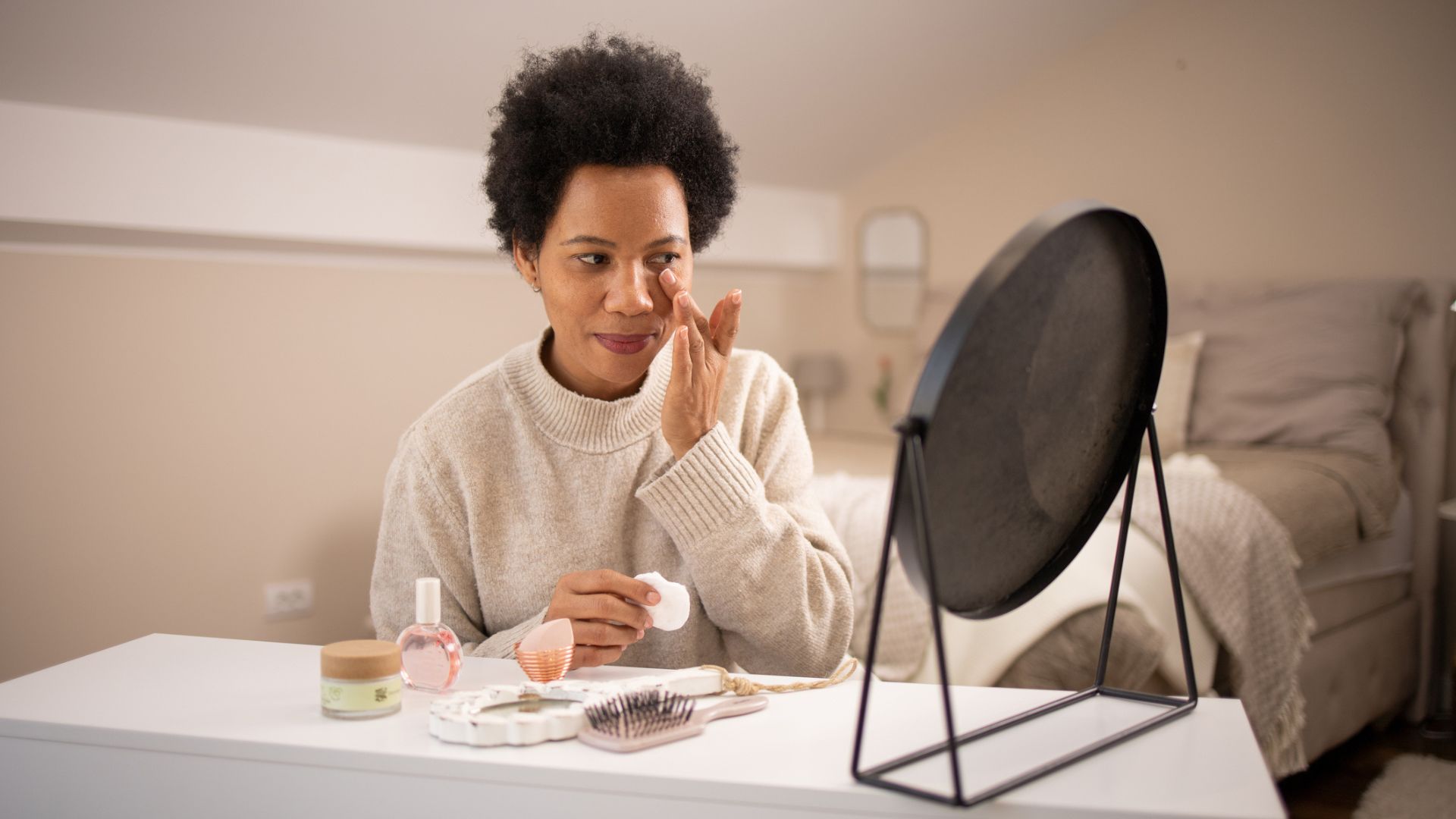
Alcohol-based toners might give you a temporary matte finish and feel as though they’re stripping oil from your skin, but they can potentially have the opposite effect - so choose your toner wisely.
"Alcohol-based products should be avoided, as they may initially feel drying but can lead to overproduction of oil,” advises Dermatology GP Dr Raja. “Avoid strong alcohol-based toners, as they can strip your skin and achieve the opposite effect by triggering rebound oiliness,” agrees medical director and skin specialist at Vie Aesthetics, Dr Ioannis Liakas.
Look for salicylic acid
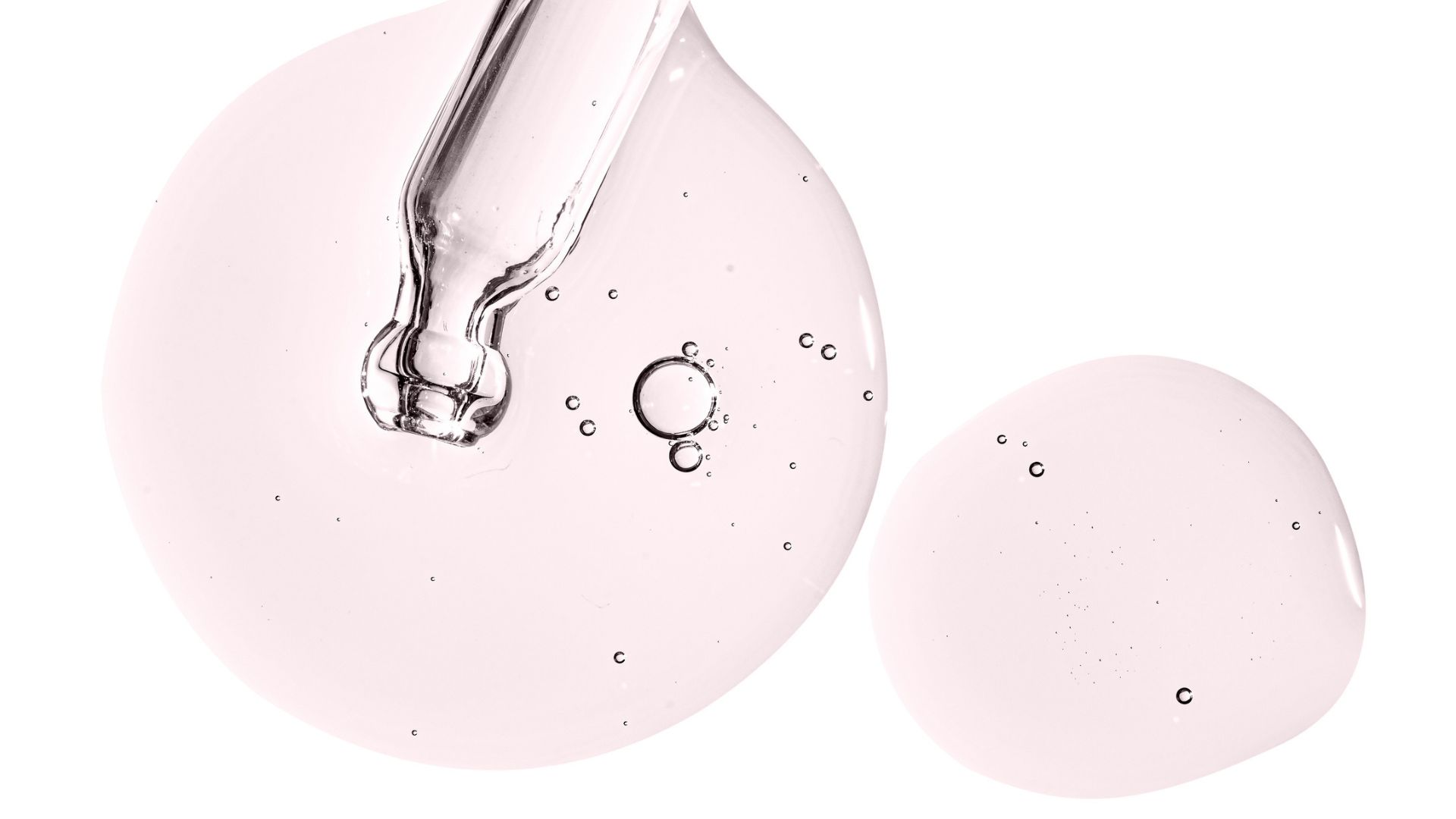
Salicylic acid can be great for oily skin as it can help regulate sebum production and unblock pores. "I recommend incorporating salicylic acid into your routine. It’s excellent for gently exfoliating, unclogging pores, and reducing excess sebum," says Dermatology GP Dr Nyla - a piece of advice that was echoed by other dermatologists and specialists that we spoke to.
Opt for a gentle formula that can be used daily, but always use the recommended instructions and start slow if you’re new to the ingredient.
Use blotting papers for on-the-go touch ups
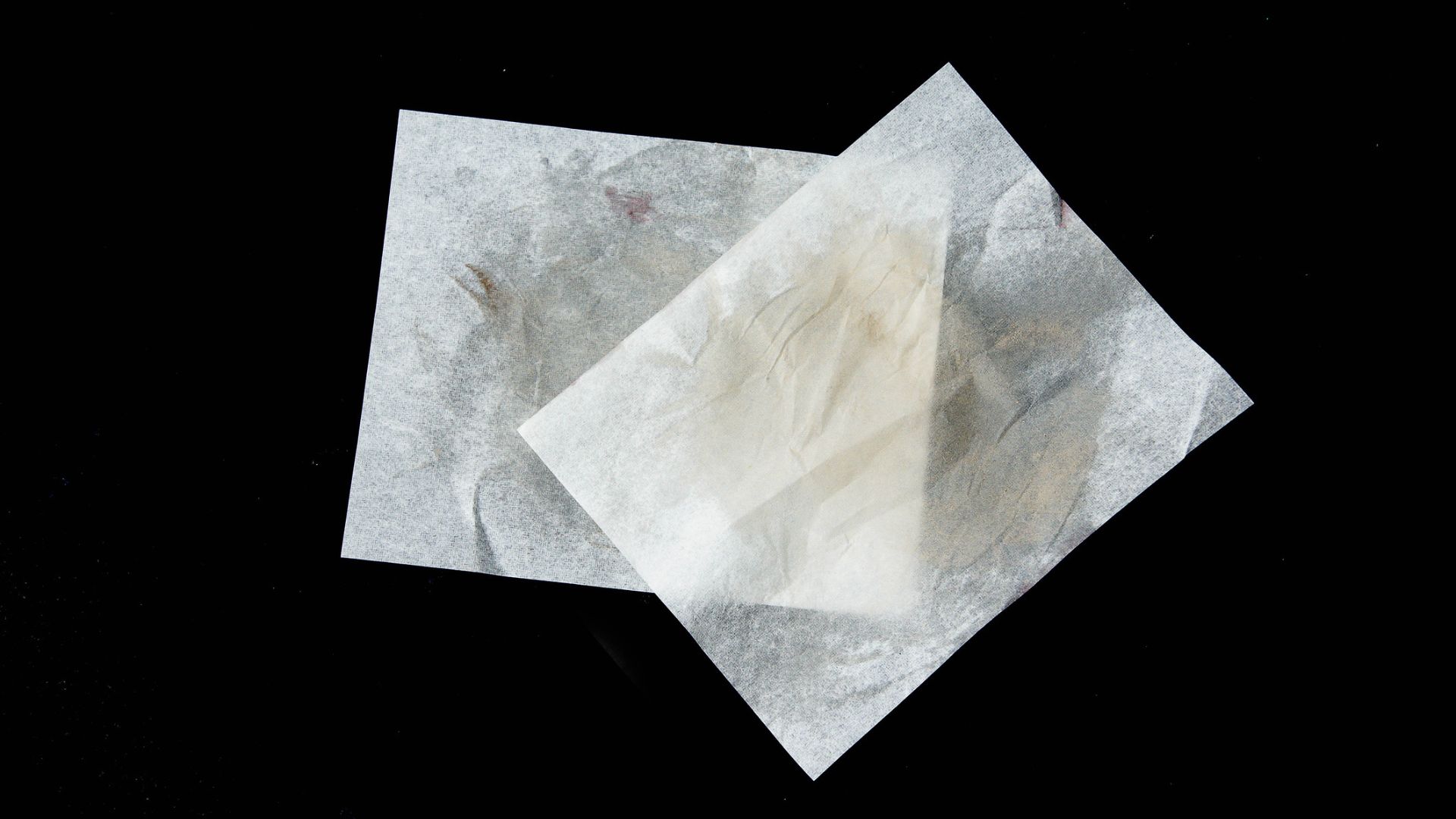
Blotting papers will absorb excess oil in a flash without ruining your makeup, making them perfect for on-the-go touchups. “Keep blotting papers handy throughout the day to quickly absorb excess oil without disturbing your makeup. Press the blotting paper gently onto oily areas to mattify the skin,” advises makeup artist Charlene Flanagan.
Clean your makeup brushes every week
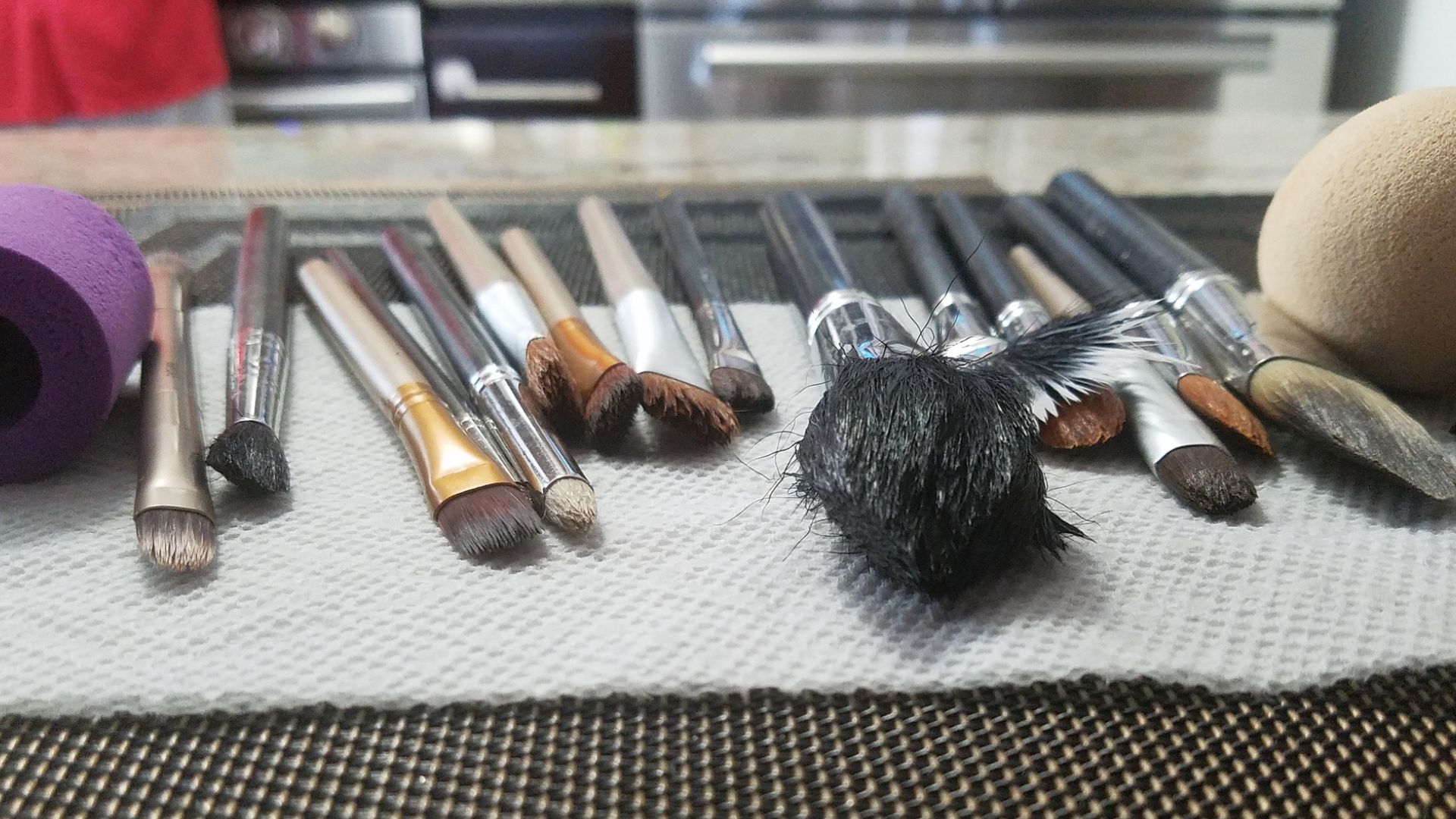
“Try to be more diligent with cleansing – and that goes for your make-up brushes too,” advises Benjamin Moffat, MD of brush cleaning brand ISOCLEAN.
“Make-up brushes are notorious for harbouring sebum, dirt, dust, product build-up and dead skin cells, as well as harmful bacteria like Propionibacterium acnes (P.acnes). P.acnes thrives on dirty make-up brushes, contaminating cosmetic products and ultimately getting transferred to your face where it is known to increase the amount of oil produced by the sebaceous glands, resulting in more oily skin and leading to breakouts, congestion and skin irritation.”
Not only will cleaning your makeup brushes and sponges regularly lessen the chance of breakouts and irritation but they’ll also prolong the life of your kit, adds Benjamin.
Look for niacinamide
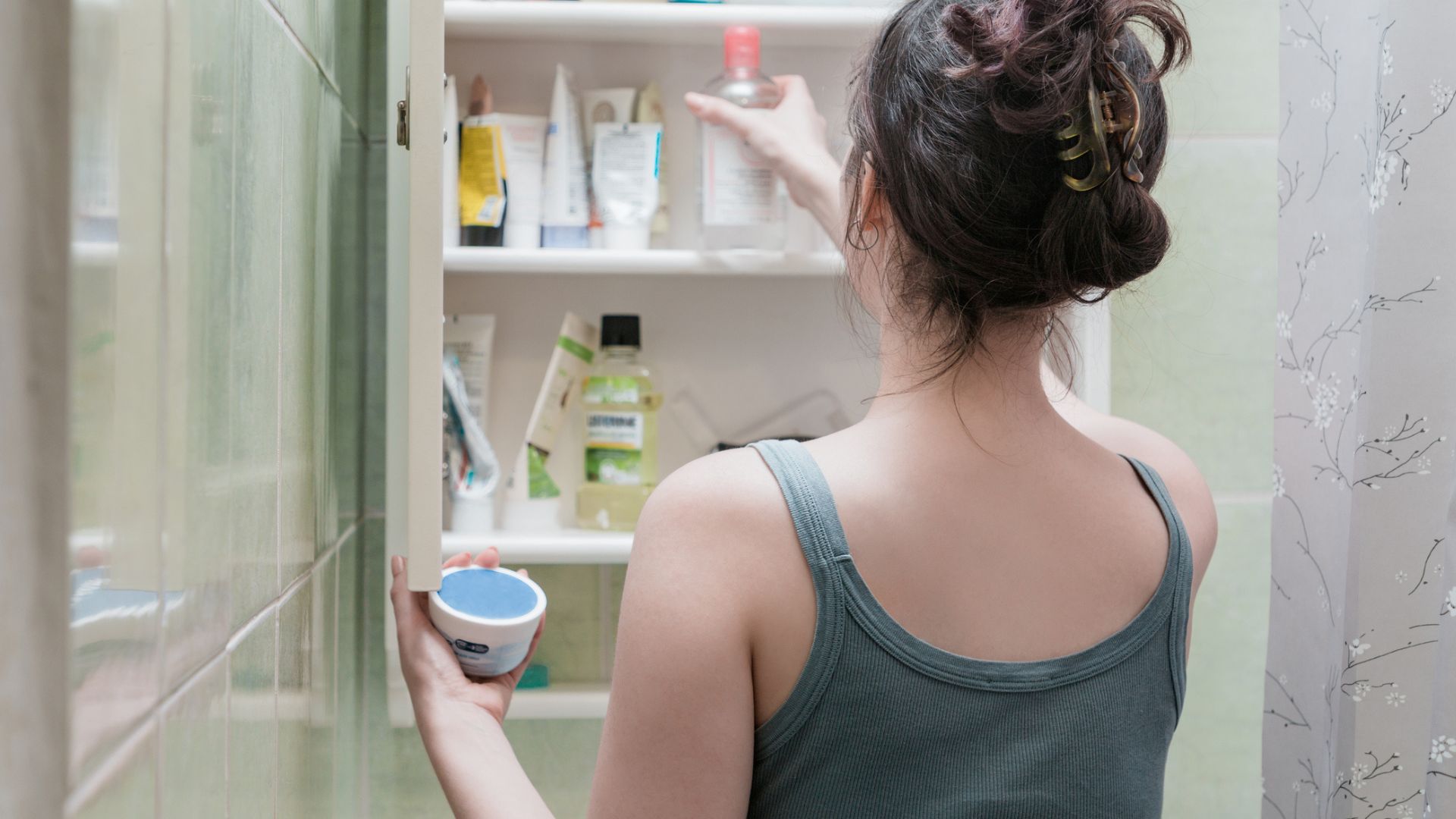
Look for lightweight serums or gels containing niacinamide. “Niacinamide is a fantastic ‘all-rounder’ ingredient and works well for those with oily skin types as it helps to regulate your skin’s oil production and visibly reduce open pores to give you smoother, more porcelain-looking skin. It works to strengthen your skin barrier (this keeps the ‘good stuff’ in and the ‘bad stuff’ out) by delivering a steady dose of skin-soothing hydration and preventing moisture from escaping from your skin. Plus, it also has anti-inflammatory properties to promote blemish healing and reduce redness once the blemish has subsided," advises skincare expert Kirsti Shuba.
"Niacinamide is a fantastic ingredient for oily skin,” agrees Dermatology GP, Dr Nyla. "It helps to regulate oil production, reduce pore size, and calm inflammation."
Avoid over-cleansing
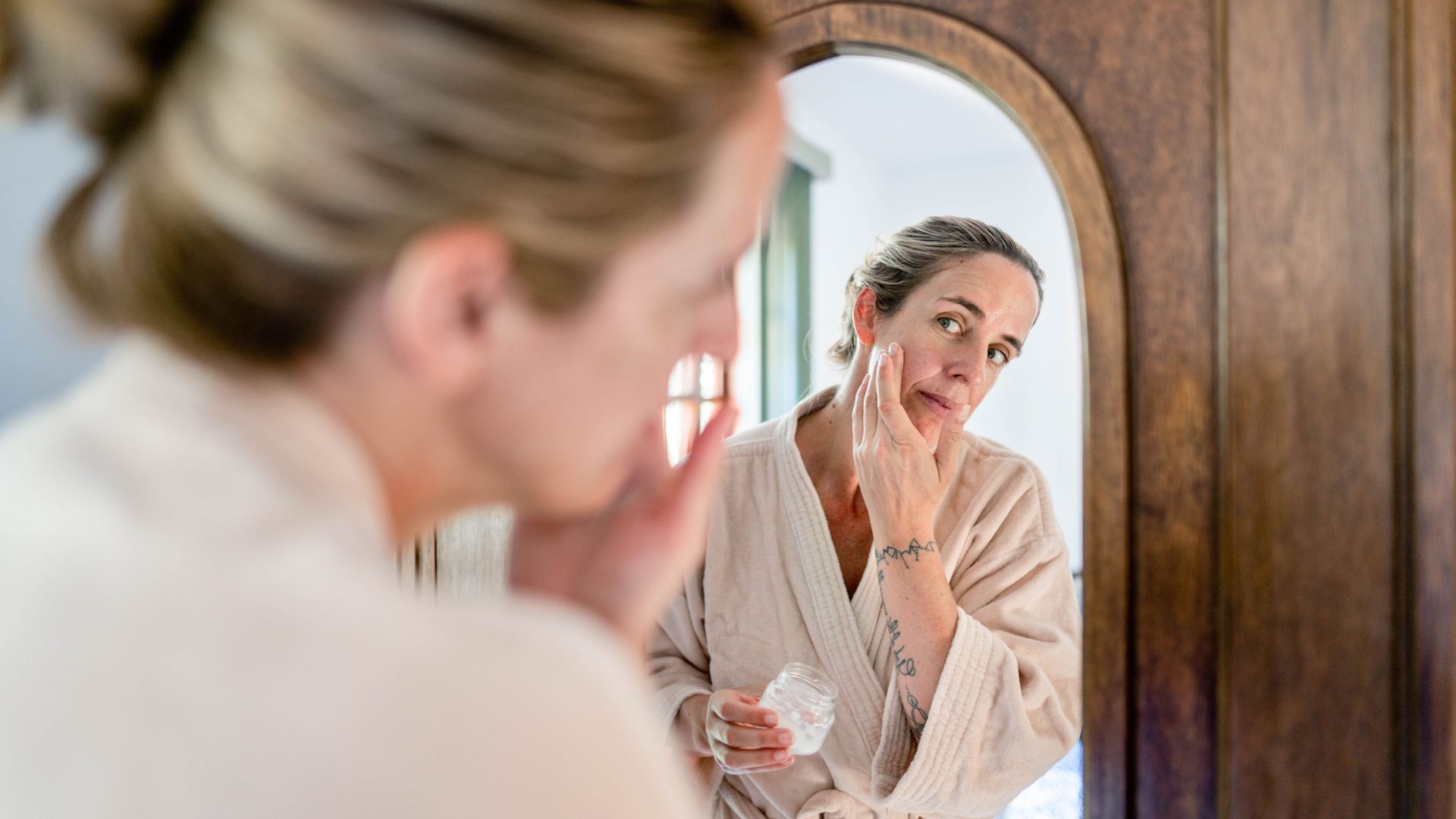
Cleansing is probably the most important part of your skincare routine, but it’s important to avoid over-cleansing, too. Scrubbing your face too much or using harsh products can strip your skin, leading to increased oil production.
Choose a non-abrasive exfoliator
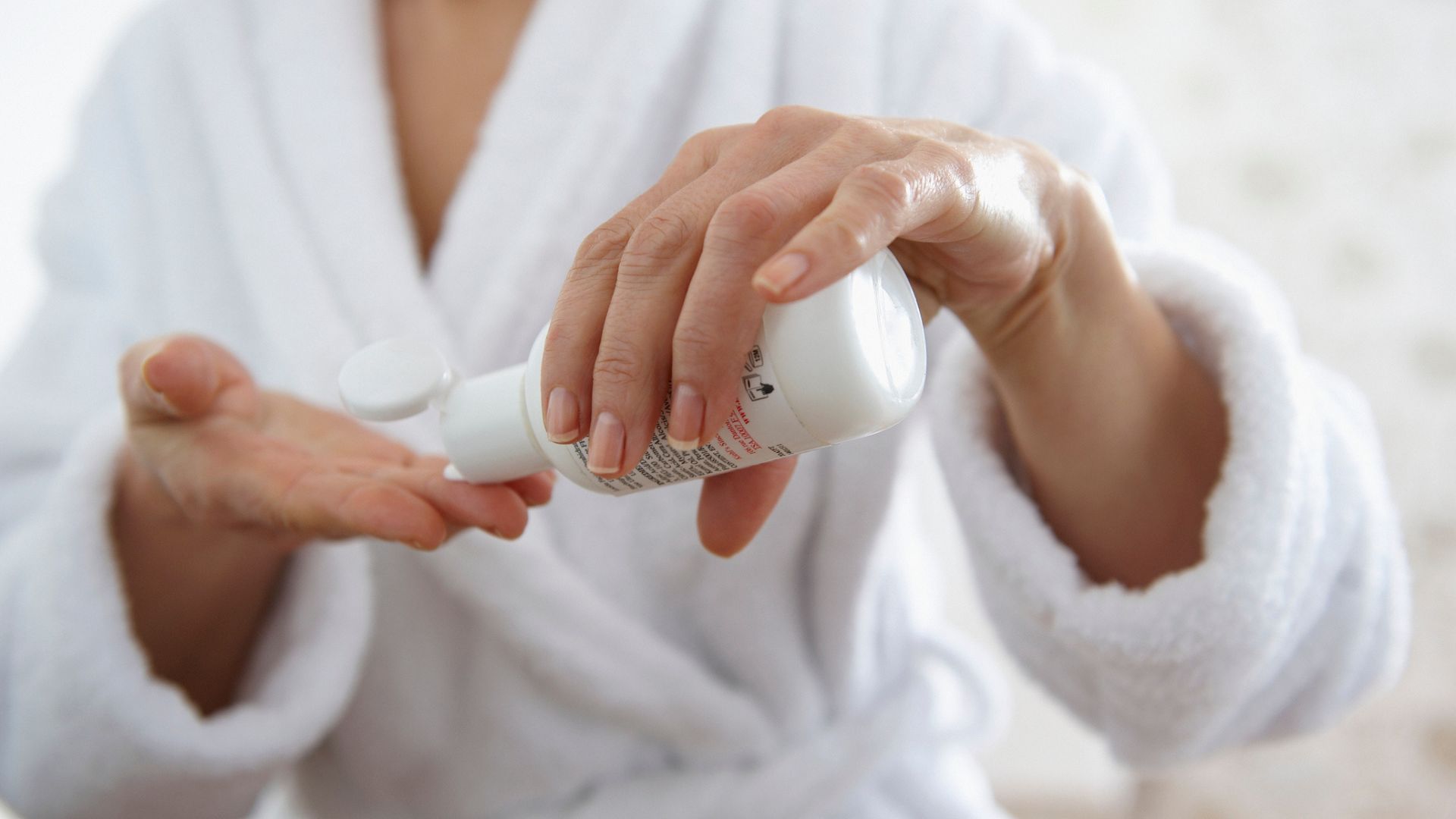
For many of us, our first foray into exfoliating was with a trusty tube of St Ives, which we’d dutifully buff our faces with, resulting in red (and still oily temples). The formula has improved these days, but if you have oily skin, you should still avoid physical scrubs and opt for an AHA instead. Why? “Physical scrubs can aggravate your sensitive, inflamed skin. Alpha Hydroxy Acid’s (AHA’s) gently dissolve dead, dull skin cells and reduce excess oil to reveal luminosity without aggression,” advises skincare expert, Kirsti Shuba.
“Harsh scrubs or strong alcohol-based toners, as they can strip your skin and achieve the opposite effect by triggering rebound oiliness,” agrees medical director and skin specialist, Dr Ionnis Liakas.
Seek out hyaluronic acid
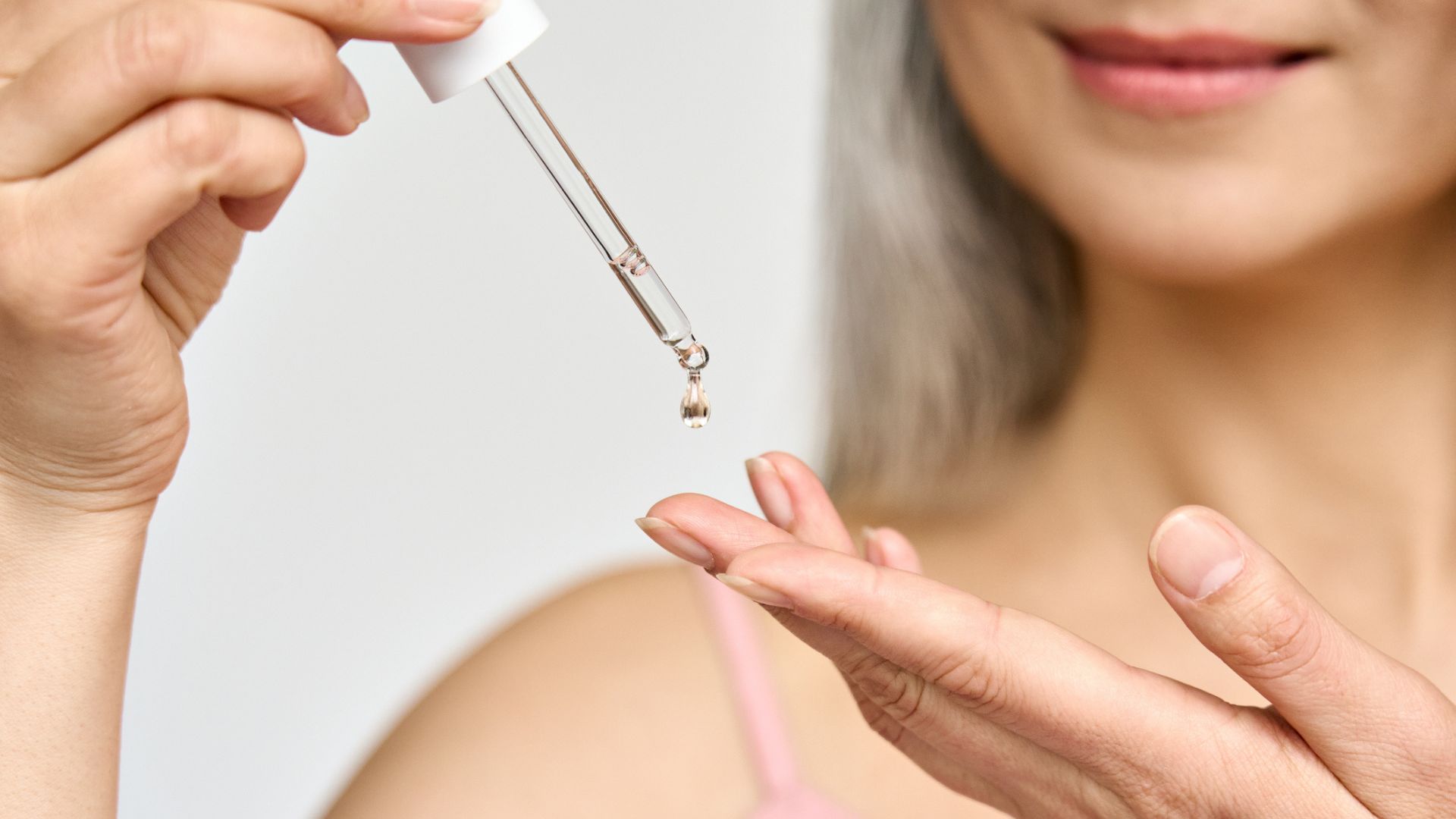
Yes, oily skin needs to be moisturised too. In fact, sometimes skin that appears oily is simply dehydrated. Opt for a lightweight hyaluronic acid which will keep the skin hydrated while regulating sebum production. "Hyaluronic acid is famous for being a super hydrator," agrees skincare expert Kirsti Shuba.
"Drawing water from the atmosphere, hyaluronic acid attracts and holds 1000 times its own weight in water to replenish your skin's moisture levels and restore a youthful plumpness. I would recommend using a low molecular weight hyaluronic acid. The smaller molecules will penetrate your skin and hydrate from the inside out."
Find out what works for you

There is no ‘one size fits all’ solution when it comes to tackling oily skin, so it’s important to try different things to see what works for you. While some best practices apply across the board - for example, having a healthy diet or using non-comedogenic formulas - everyone’s skin is different. Similarly, you need to find a routine that works within your lifestyle.
Avoid heavy cream-based moisturisers
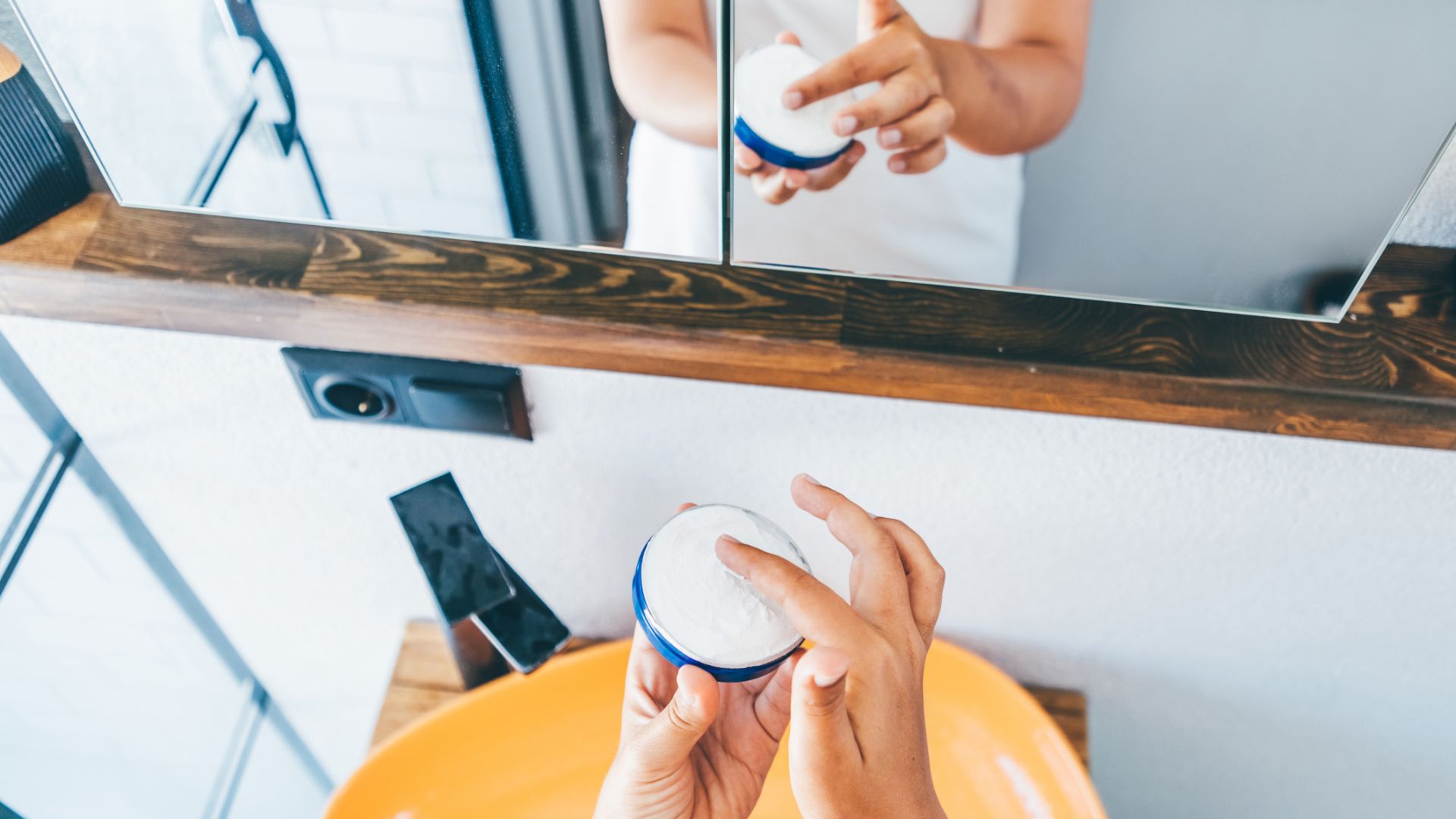
Not all thick or heavy creams are bad, it's all about the ingredients. But, in general, gel-based formulas will work better - even in winter.
"Oily skin can still be dehydrated and it’s important to keep it moist," advises skincare expert and founder of Ultrasun and SkinSense, Abi Cleeve. "Opt for lightweight hydration - gels are often good for this. They are usually water-based which means you can top up hydration when needed whilst avoiding the build-up that might exacerbate breakouts and oiliness.”
Book in an appointment with a dermatologist
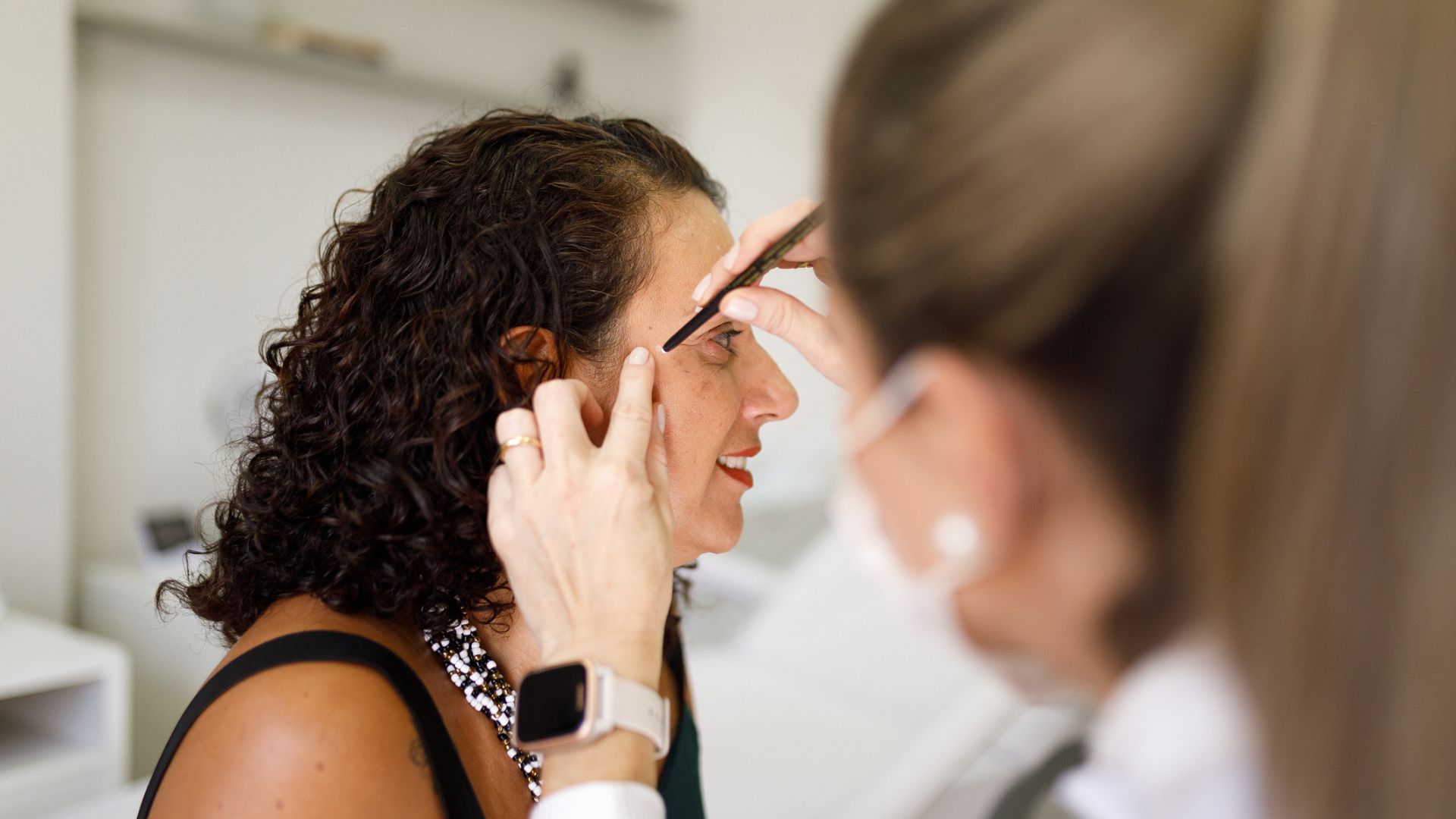
Granted it might not be within everyone’s reach, but if you can, it’s worth seeking professional help to really understand your skin type. You might think you have oily skin, but instead, it’s simply dehydrated. A dermatologist can help put together an individual plan for you and also look into the underlying causes behind your oily skin - genetics, hormones and medical conditions can all play a part.
Pay attention to your nighttime routine

If you find some moisturisers and treatments too heavy or shine-inducing during the day, pay close attention to your nighttime routine.
"For oily skin, overnight is the best time for replenishment and rejuvenation of your skin barrier. The skin's ability to repair is most active at night and is more receptive to active ingredients. There are multiple reasons you need a nighttime skincare routine - to balance sebum levels, to treat skin concerns, to counterbalance moisture levels we naturally lose during sleep, and to heal the skin. This is the time of day to focus on your serums, toners and various skin treatments,” advises Dermatology GP Dr Raja.
Avoid touching your face
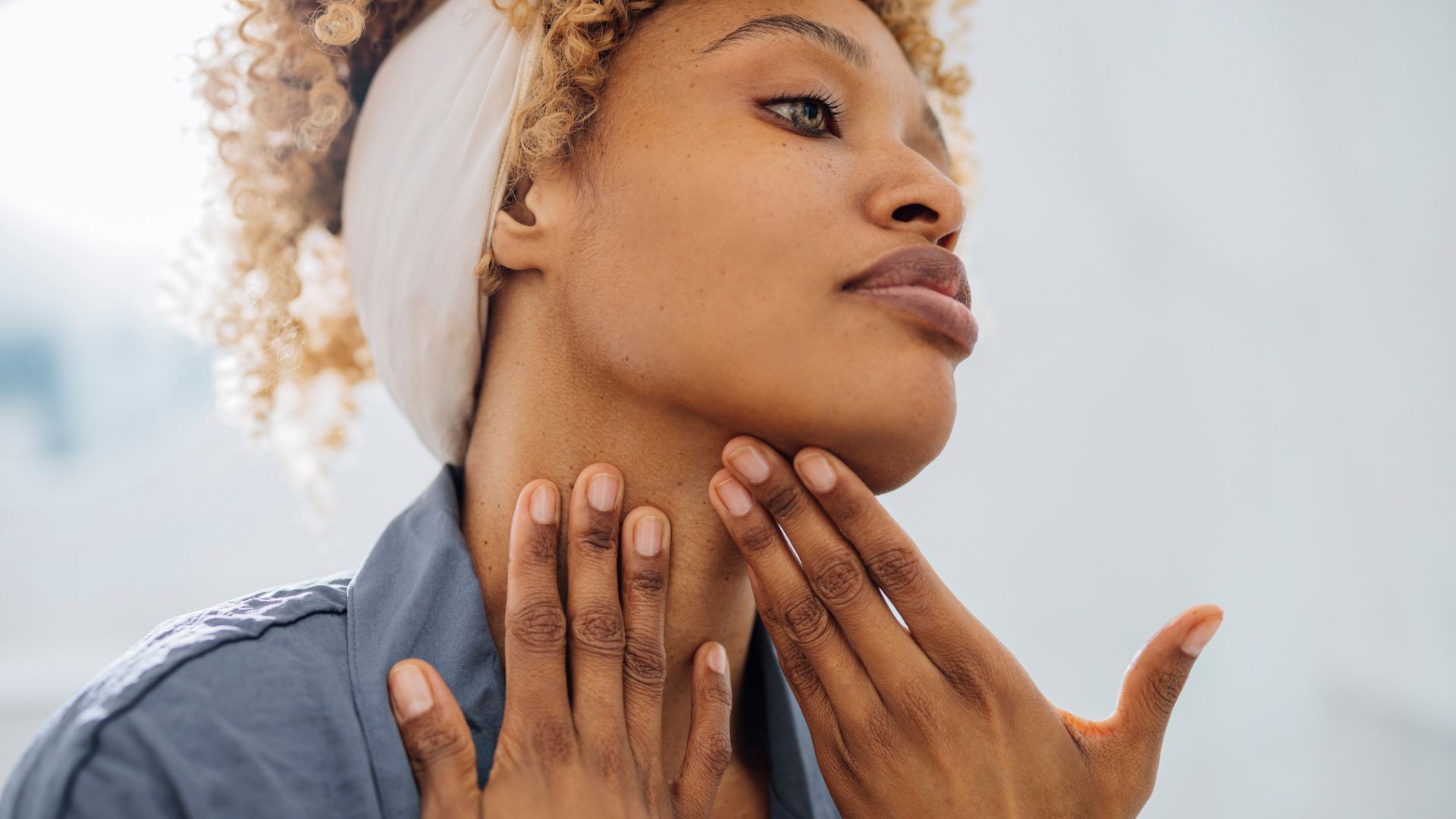
It can be tempting to wipe away excess oil on your face throughout the day, especially if you’re self-conscious about your skin. But touching your face can make it worse, spreading oil, dirt and bacteria from your hands to your face.
Use a mattifying powder
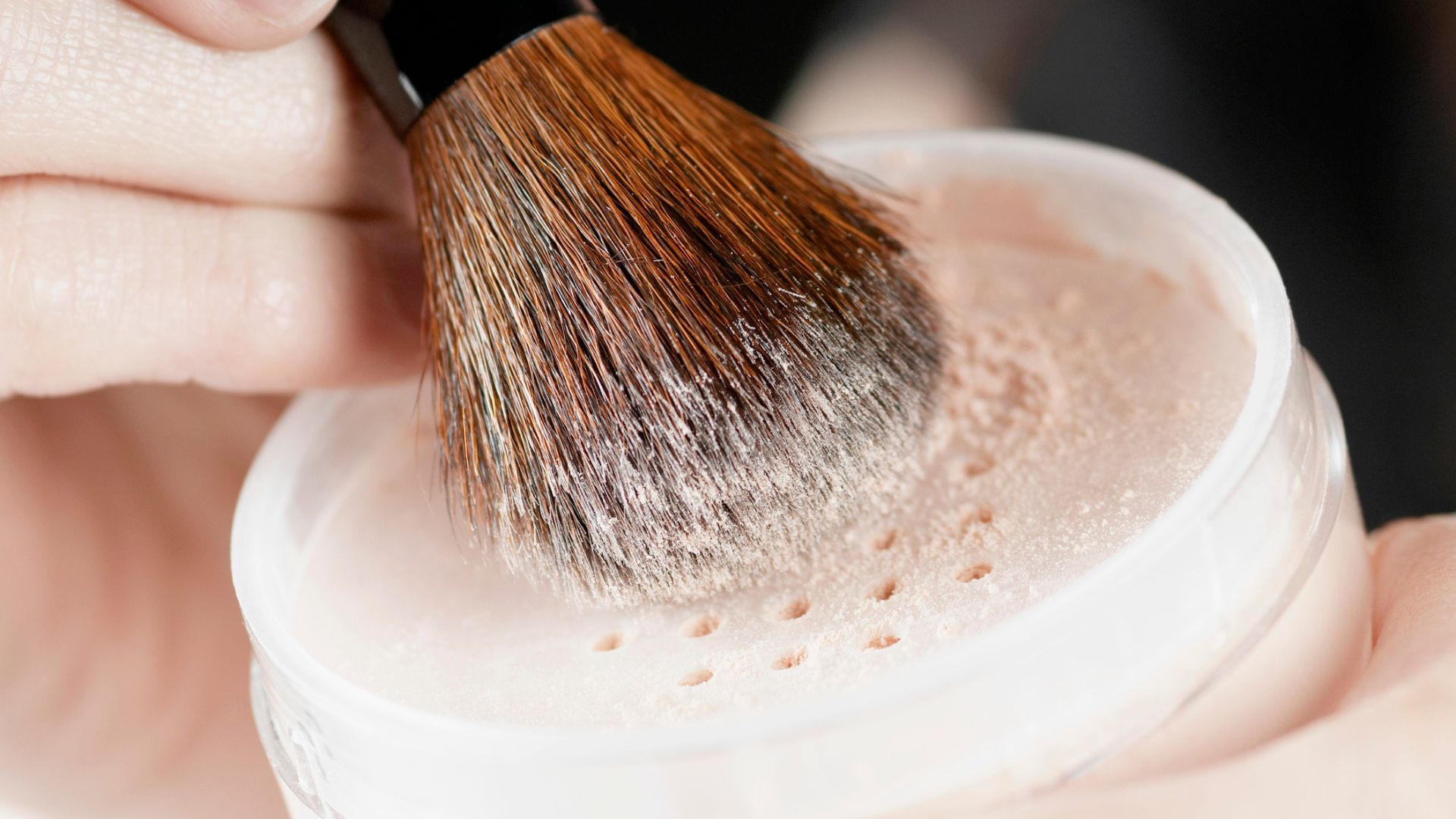
Using a mattifying powder will help set your makeup, but it’s also a great piece to have in your kit for touch-ups throughout the day. “Set your makeup with a translucent powder. Focus on areas prone to shine, like the T-zone, to keep oil at bay. Avoid over-powdering to prevent a cakey look,” advises makeup artist Charlene Flanagan.
Alternatively, try a matte foundation which can camouflage enlarged pores and provide a smooth base.
Reach for oil-free foundations
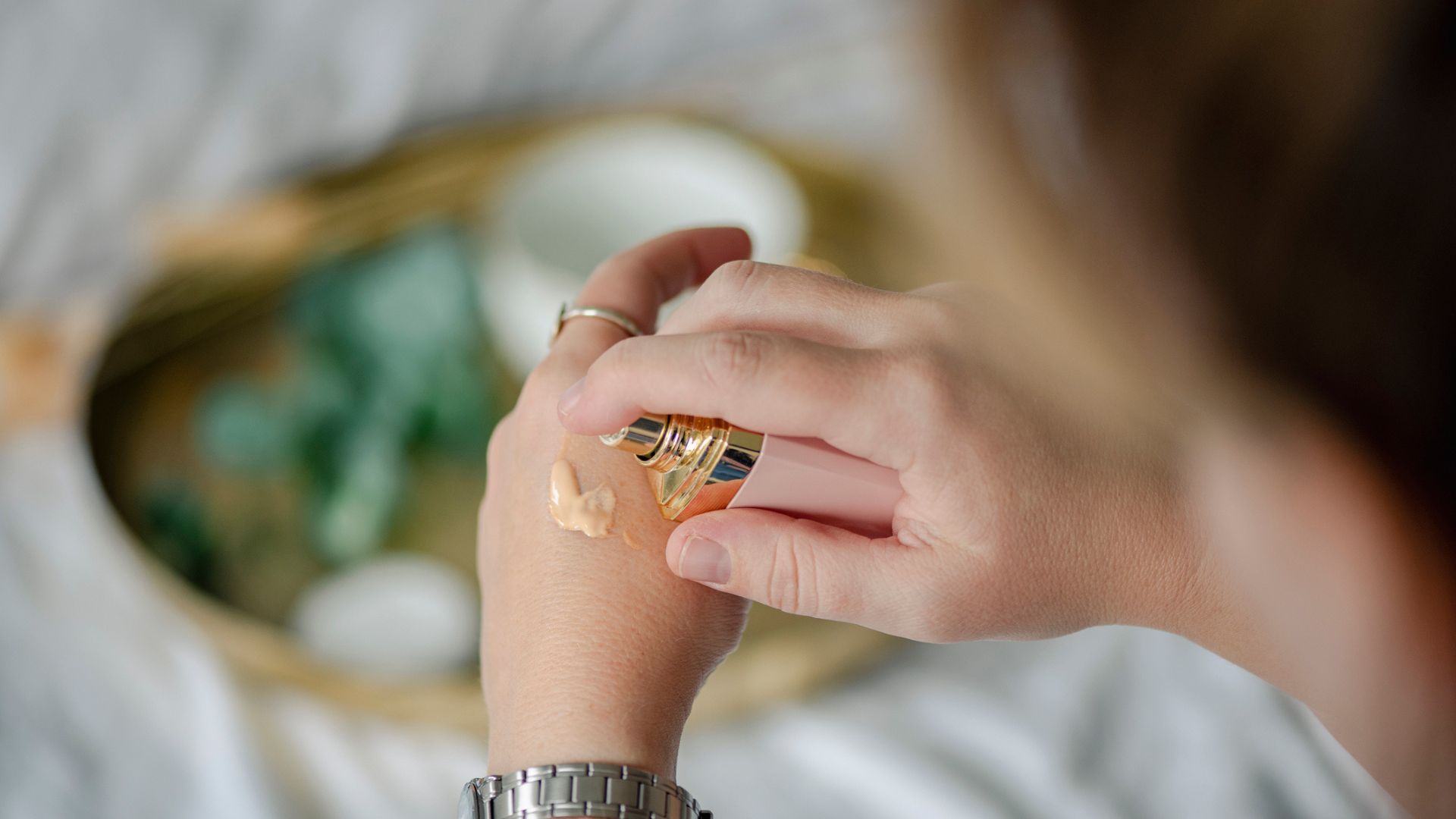
To get that glowy-but-not-greasy finish, opt for a foundation specifically formulated for oilier skin types. “Opt for oil-free or matte finish foundations that are specifically formulated for oily skin. These foundations help absorb excess oil throughout the day without clogging pores,” advises makeup artist Charlene Flanagan.
Avoid face wipes
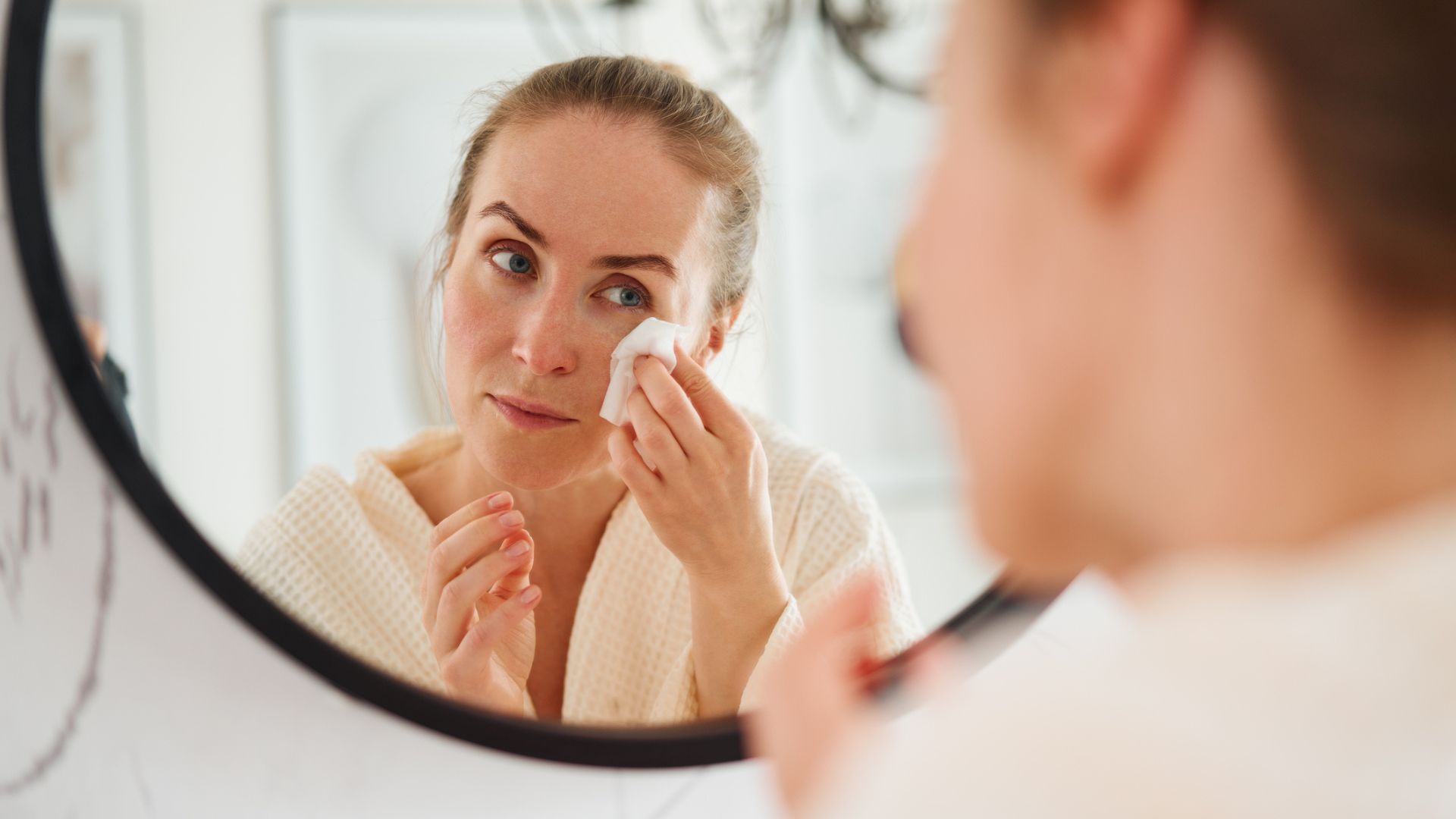
Raise your hand if you’re guilty of sometimes washing away the day with a humble face wipe. We probably don’t need to tell you why that’s bad for your skin, but in short, they can irritate your skin, strip away its natural oils and simply aren’t that effective at removing makeup.
“Stripping products quite literally strip your skin of its natural oils. This leads to dehydration and damages your skin barrier function which can lead to a myriad of issues – think premature ageing, breakouts, pigmentation etc. Avoid products like face wipes, alcohol-based toners and foaming face washes that contain SLS,” recommends skincare expert Kirsti Shuba.
Try retinol
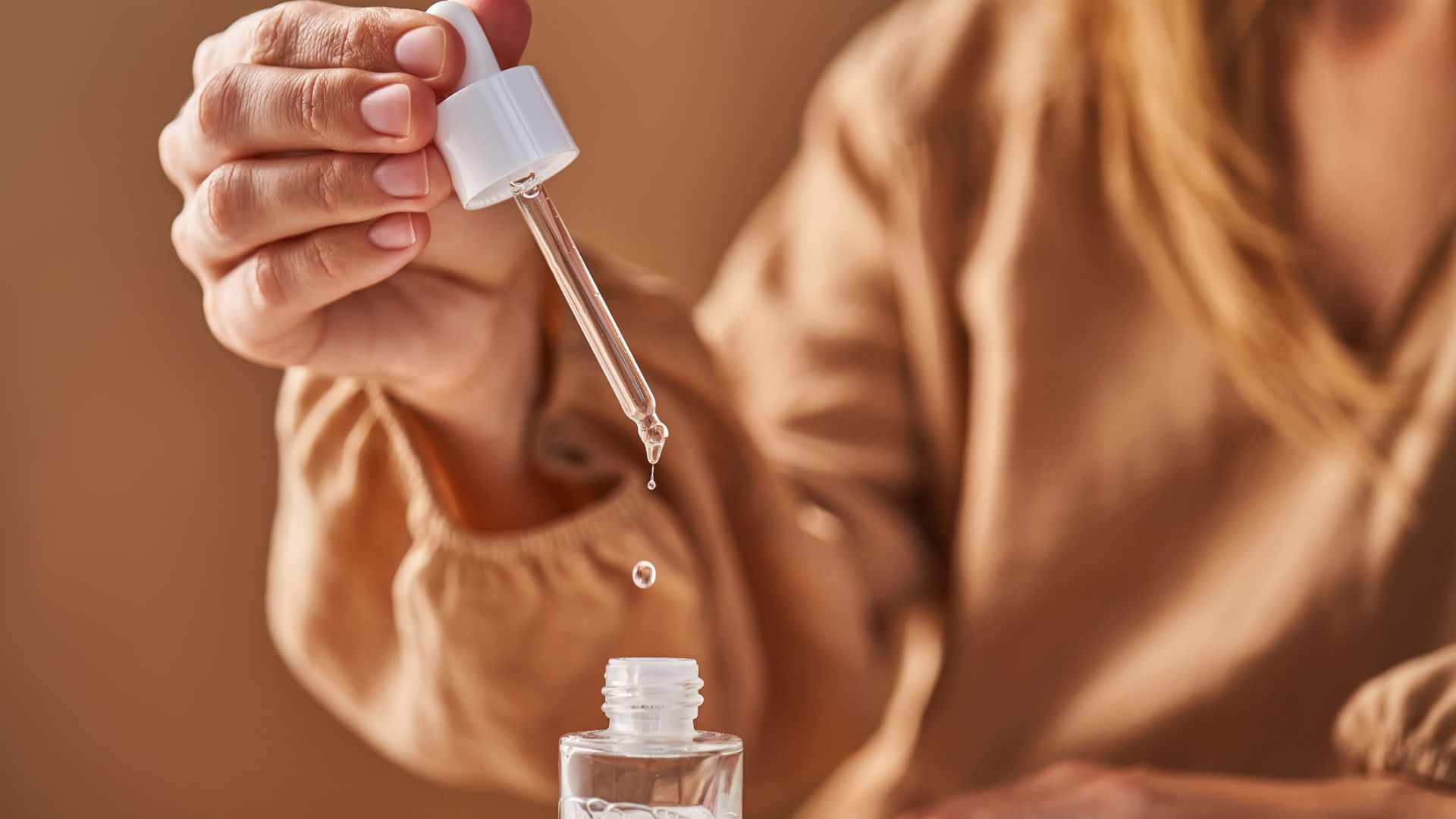
Retinol can help regulate oil production and minimise pores while improving overall skin texture. However, it’s important to start small and build up, as it can lead to skin irritation.
“Retinol, often associated with anti-ageing properties, can be beneficial for oily skin as it stimulates cell turnover which reduces the overproduction of sebum, tackling the issue deeper in the skin's dermis,” advises Dermatology GP, Dr Nyla.
Opt for oil-free
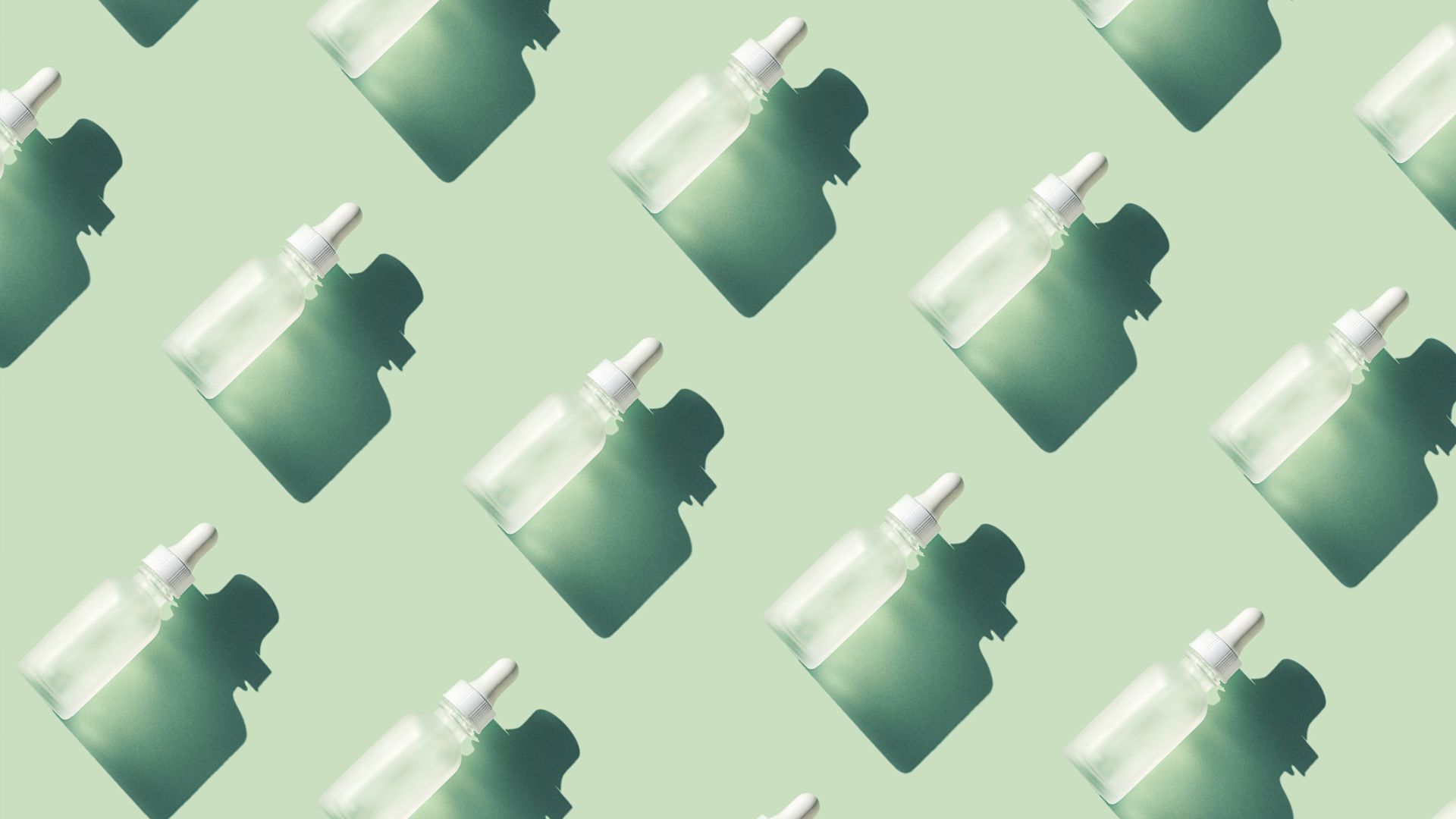
This might sound obvious but aim to use oil-free moisturisers and products as these tend to be non-comedogenic, meaning they won’t clog your pores. Always scrutinise the ingredient list though - many products claim to be oil-free but on closer inspection, you’ll find they contain an array of different oils that have the potential to block your pores. Don’t forget that a bit of oil is good though, it’s all about finding the right product for you.
Cleanse twice daily
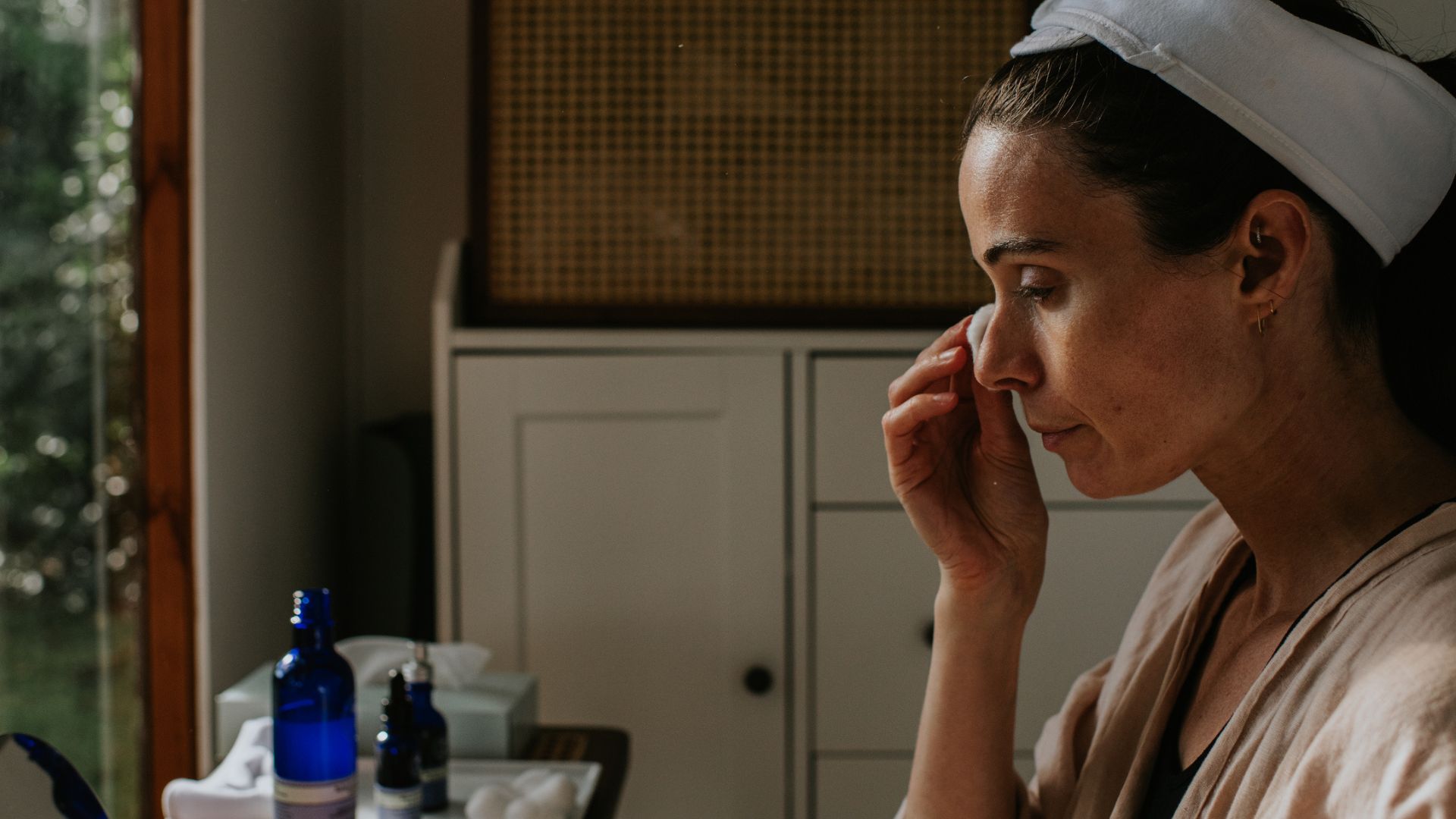
Use a gentle, pH-balanced cleanser every morning and evening to remove excess oils without stripping your skin. Most derms and skincare experts we spoke to recommended this cadence, adding that evening cleansing is particularly important as it cleans away any makeup, impurities and dirt from the day.
Avoid processed foods

It’s no secret that processed foods are bad for our health, but they can also be bad for our skin, especially if you’re prone to oily skin. Try to limit complex carbohydrates and sugary processed foods as these can lead to increased sebum production.
Stay hydrated!
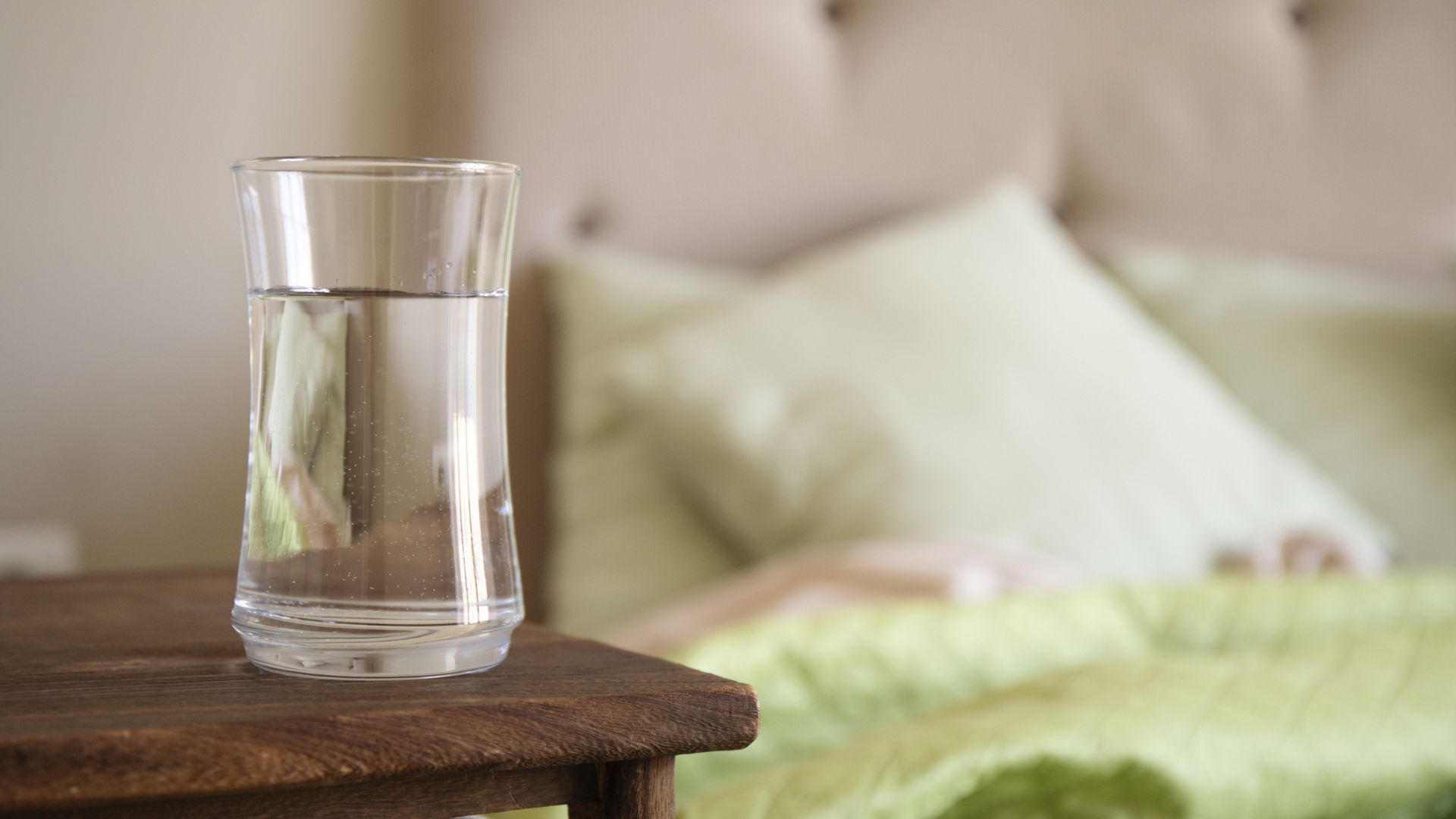
The importance of staying hydrated cannot be understated and drinking enough water is crucial for your health, helping many of your body's functions, while boosting mood, digestion and more. It's also essential for maintaining skin moisture, helping to keep it plump, smooth and supple. What's more, if your body is dehydrated, your skin will in turn compensate by producing more oil - bad news for anyone with oily skin!
Understand your skin type
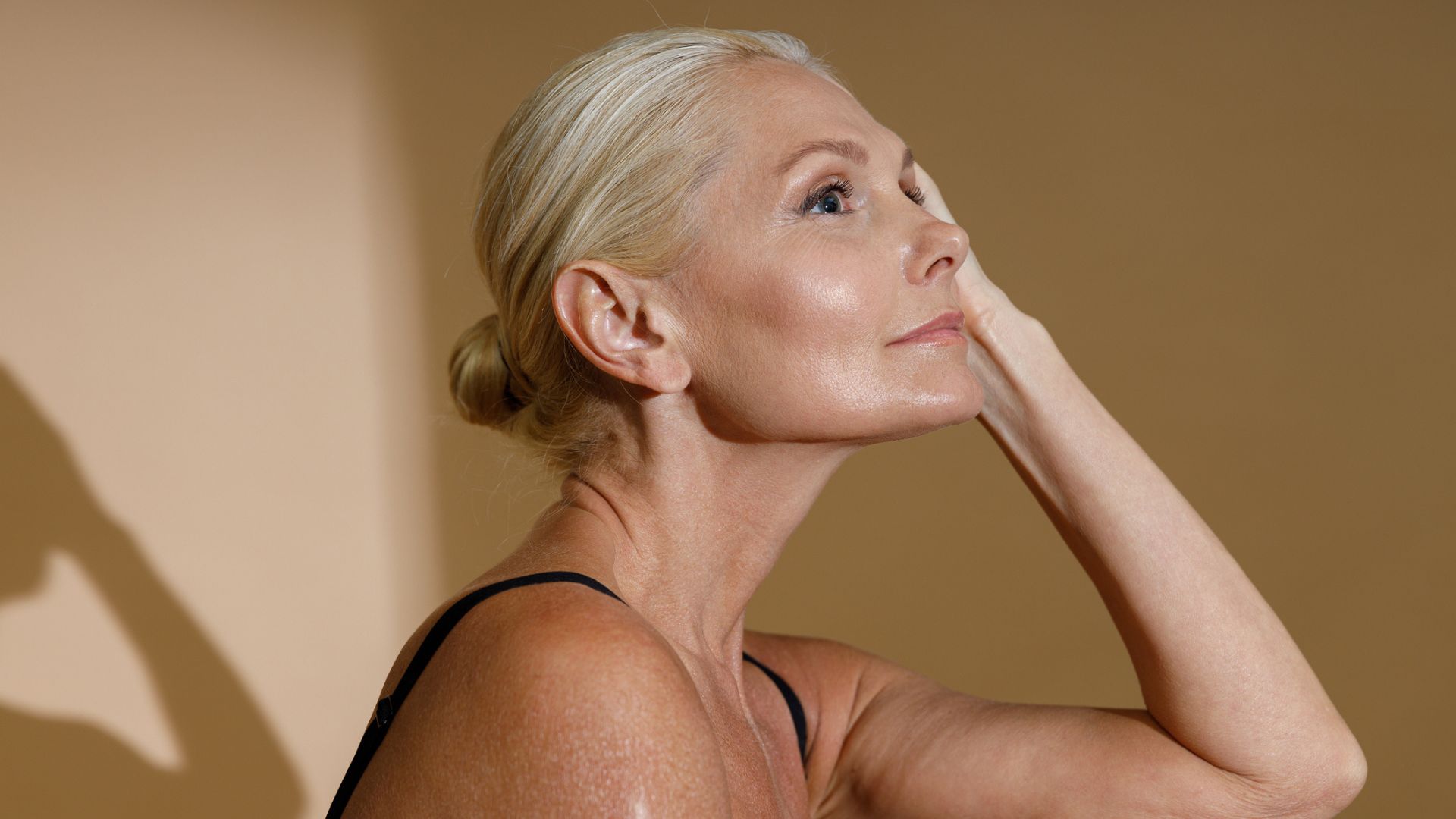
It might sound obvious but before committing to a skincare routine, it's important to *actually* understand your skin type and concern. While they sound like they might sit on opposite ends of the spectrum, dehydrated skin and oily skin are often mistaken for each other. In very simple terms, oily skin is a genetic skin type, whereas dehydrated skin is a condition, whereby the skin is dehydrated and overproduces sebum to make up for this - in turn, leading to an oily sheen throughout the day. You'll want to follow different advice depending on which you have.
Always remove your makeup before going to bed
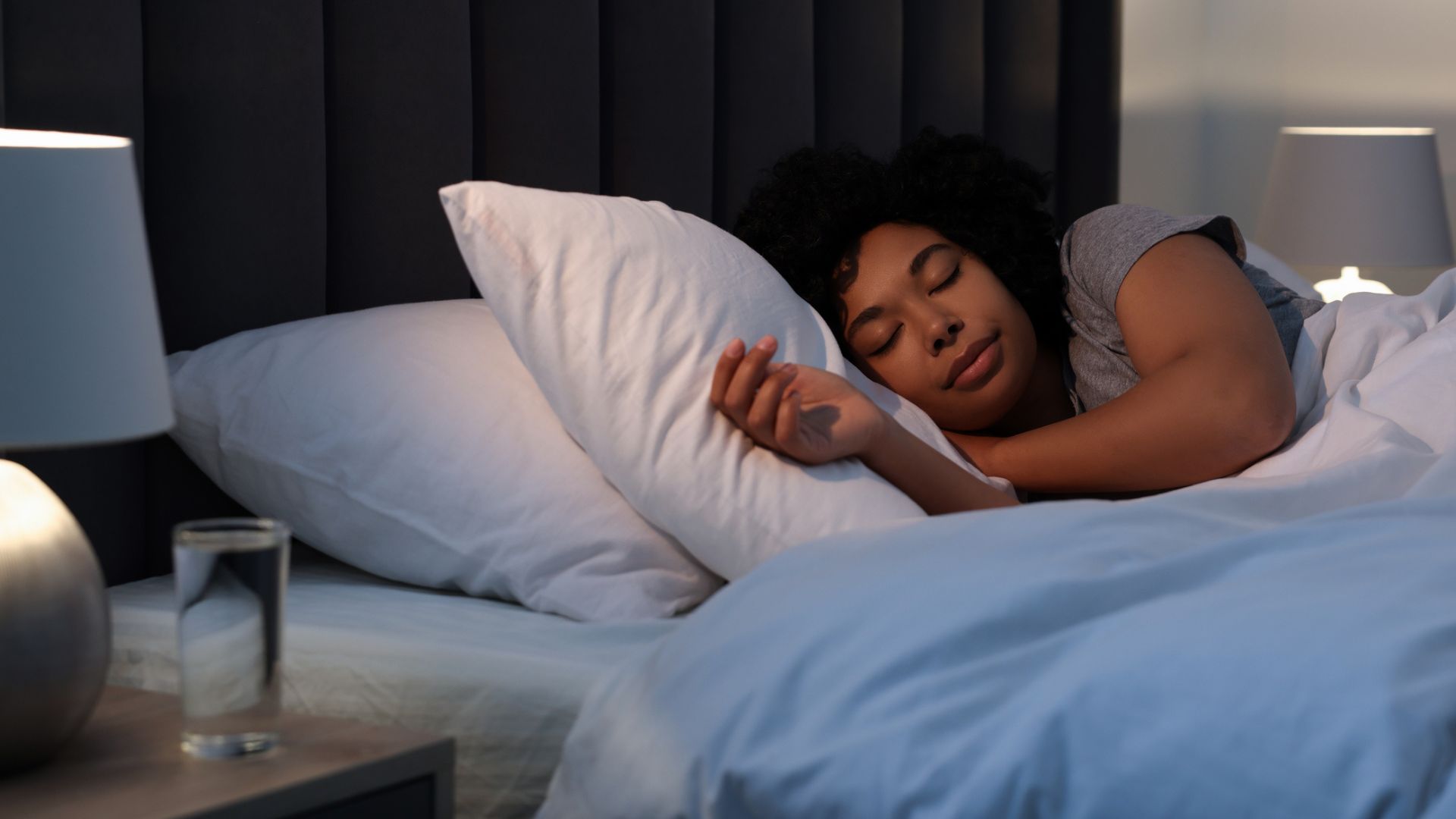
Sleeping in day-old makeup can lead to blocked pores, break-outs, dull skin when you wake up, irritation and more. In short, even if you're feeling exhausted and ready to hit the hay, always take a minute to remove your makeup.
Use a gel moisturiser
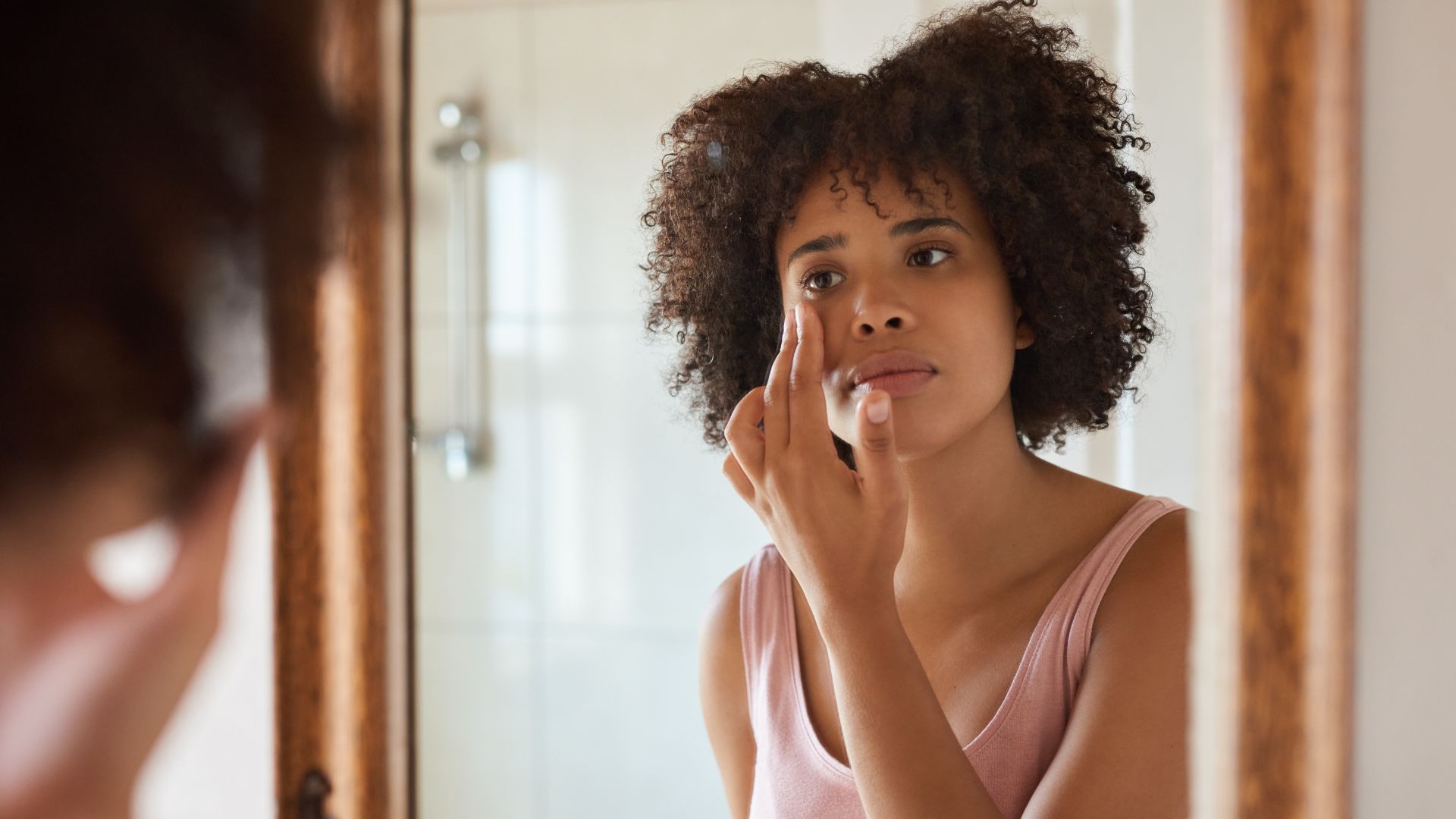
While cream-based solutions aren't an absolute no-go, as it really depends on the ingredients, gel-based moisturisers are generally better for people with oily skin.
"I recommend those with oily skin use a gel moisturiser rather than cream-based. Its lightweight, water-based texture hydrates the skin and absorbs quickly without promoting oil production. This ensures the skin receives a moisture boost without clogging pores and leaving a greasy residue, agrees makeup artist and beauty expert at Just My Look, Hayley Walker.
Avoid Petrolatum (petroleum jelly)
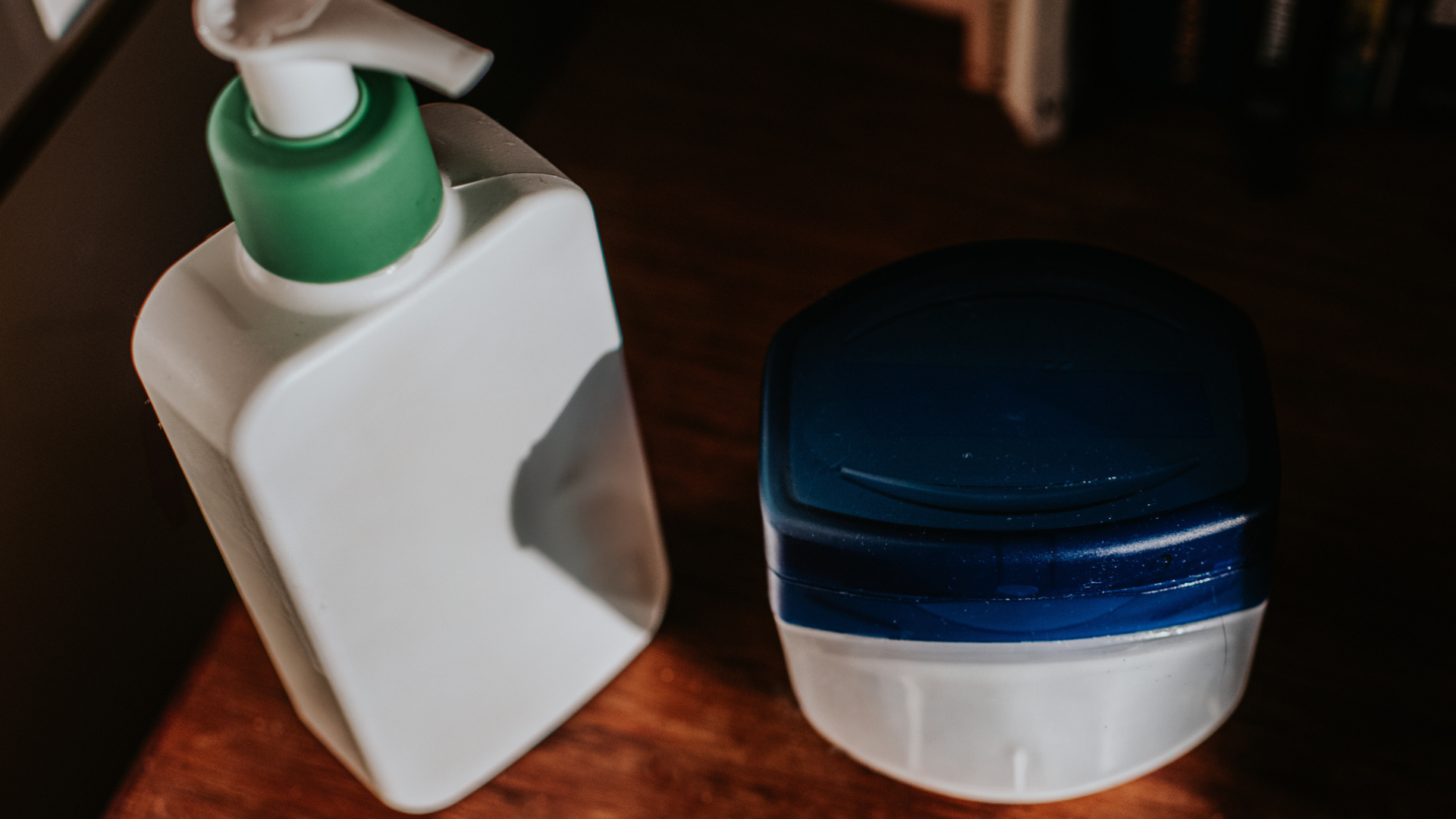
When your skin is dry, especially over the winter months, it can be tempting to slather petroleum jelly over your face, or on top of your lashes or lids for an extra-moisturising boost. And while slugging does carry some benefits, this is probably a trend to avoid if you have oily skin. Quite simply, vaseline or similar products will block your pores, resulting in breakouts.







